

PICOT Question Examples for Nursing Research

Are you looking for examples of nursing PICOT questions to inspire your creativity as you research for a perfect nursing topic for your paper? You came to the right place.
We have a comprehensive guide on how to write a good PICO Question for your case study, research paper, white paper, term paper, project, or capstone paper. Therefore, we will not go into the details in this post. A good PICOT question possesses the following qualities:
- A clinical-based question addresses the nursing research areas or topics.
- It is specific, concise, and clear.
- Patient, problem, or population.
- Intervention.
- Comparison.
- Includes medical, clinical, and nursing terms where necessary.
- It is not ambiguous.
For more information, read our comprehensive PICOT Question guide . You can use these questions to inspire your PICOT choice for your evidence-based papers , reports, or nursing research papers.
If you are stuck with assignments and want some help, we offer the best nursing research assignment help online. We have expert nursing writers who can formulate an excellent clinical, research, and PICOT question for you. They can also write dissertations, white papers, theses, reports, and capstones. Do not hesitate to place an order.
List of 180 Plus Best PICOT Questions to Get Inspiration From
Here is a list of nursing PICO questions to inspire you when developing yours. Some PICOT questions might be suitable for BSN and MSN but not DNP. If you are writing a change project for your DNP, try to focus on PICOT questions that align to process changes.
- Among healthy newborn infants in low- and middle-income countries (P), does early skin-to-skin contact of the baby with the mother in the first hour of life (I) compared with drying and wrapping (C) have an impact on neonatal mortality, hypothermia or initiation/exclusivity/ duration of breastfeeding (O)?
- Is it necessary to test blood glucose levels 4 times daily for a patient suffering from Type 1 diabetes?
- Does raising the head of the bed of a mechanically ventilated patient reduce the chances of pneumonia?
- Does music therapy is an effective mode of PACU pain management for patients who are slowly coming out from their anesthesia?
- For all neonates (P), should vitamin K prophylaxis (I) be given for the prevention of vitamin K deficiency bleeding (O)?
- For young infants (0-2 months) with suspected sepsis managed in health facilities (P), should third generation cephalosporin monotherapy (I) replace currently recommended ampicillin-gentamicin combination (C) as first line empiric treatment for preventing death and sequelae (O)?
- In low-birth-weight/pre-term neonates in health facilities (P), is skin-to-skin contact immediately after birth (I) more effective than conventional care (C) in preventing hypothermia (O)?
- In children aged 2–59 months (P), what is the most effective antibiotic therapy (I, C) for severe pneumonia (O)?
- Is skin-to-skin contact of the infant with the mother a more assured way of ensuring neonatal mortality compared to drying and wrapping?
- Are oral contraceptives effective in stopping pregnancy for women above 30 years?
- Is spironolactone a better drug for reducing the blood pressure of teenagers when compared to clonidine?
- What is the usefulness of an LP/spinal tap after the beginning of antivirals for a pediatric population suffering from fever?
- In children aged 2–59 months in developing countries (P), which parenteral antibiotic or combination of antibiotics (I), at what dose and duration, is effective for the treatment of suspected bacterial meningitis in hospital in reducing mortality and sequelae (O)?
- Does the habit of washing hands third-generation workers decrease the events of infections in hospitals?
- Is the intake of zinc pills more effective than Vitamin C for preventing cold during winter for middle-aged women?
- In children with acute severe malnutrition (P), are antibiotics (I) effective in preventing death and sequelae (O)?
- Among, children with lower respiratory tract infection (P), what are the best cut off oxygen saturation levels (D), at different altitudes that will determine hypoxaemia requiring oxygen therapy (O)?
- In infants and children in low-resource settings (P), what is the most appropriate method (D) of detecting hypoxaemia in hospitals (O)?
- In children with shock (P), what is the most appropriate choice of intravenous fluid therapy (I) to prevent death and sequelae (O)?
- In fully conscious children with hypoglycaemia (P) what is the effectiveness of administering sublingual sugar (I)?
- Is using toys as distractions during giving needle vaccinations to toddlers an effective pain response management?
- What is the result of a higher amount of potassium intake among children with low blood pressure?
- Is cup feeding an infant better than feeding through tubes in a NICU setup?
- Does the intervention of flushing the heroin via lines a more effective way of treating patients with CVLs/PICCs?
- Is the use of intravenous fluid intervention a better remedy for infants under fatal conditions?
- Do bedside shift reports help in the overall patient care for nurses?
- Is home visitation a better way of dealing with teen pregnancy when compared to regular school visits in rural areas?
- Is fentanyl more effective than morphine in dealing with the pain of adults over the age of 50 years?
- What are the health outcomes of having a high amount of potassium for adults over the age of 21 years?
- Does the use of continuous feed during emesis a more effective way of intervention when compared to the process of stopping the feed for a short period?
- Does controlling the amount of sublingual sugar help completely conscious children suffering from hypoglycemia?
- Is the lithotomy position an ideal position for giving birth to women in labor?
- Does group therapy help patients with schizophrenia to help their conversational skills?
- What are the probable after-effects, in the form of bruises and other injuries, of heparin injection therapy for COPD patients?
- Would standardized discharge medication education improve home medication adherence in adults age 65 and older compared to-standardized discharge medication education?
- In patients with psychiatric disorders is medication non-compliance a greater risk compared with adults experiencing chronic illness?
- Is the use of beta-blockers for lowering blood pressure for adult men over the age of 70 years effective?
- Nasal swab or nasal aspirate? Which one is more effective for children suffering from seasonal flu?
- What are the effects of adding beta-blockers for lowering blood pressure for adult men over the age of 70 years?
- Does the process of stopping lipids for 4 hours an effective measure of obtaining the desired TG level for patients who are about to receive TPN?
- Is medical intervention a proper way of dealing with childhood obesity among school-going children?
- Can nurse-led presentations of mental health associated with bullying help in combating such tendencies in public schools?
- What are the impacts of managing Prevacid before a pH probe study for pediatric patients with GERD?
- What are the measurable effects of extending ICU stays and antibiotic consumption amongst children with sepsis?
- Does the use of infrared skin thermometers justified when compared to the tympanic thermometers for a pediatric population?
- What are the roles of a pre-surgery cardiac nurse in order to prevent depression among patients awaiting cardiac operation?
- Does the increase in the habit of smoking marijuana among Dutch students increase the chances of depression?
- What is the direct connection between VAP and NGT?
- Is psychological intervention for people suffering from dementia a more effective measure than giving them a placebo?
- Are alarm sensors effective in preventing accidents in hospitals for patients over the age of 65 years?
- Is the sudden change of temperature harmful for patients who are neurologically devastated?
- Is it necessary to test blood glucose levels, 4 times a day, for a patient suffering from Type 1 diabetes?
- Is the use of MDI derive better results, when compared to regular nebulizers, for pediatric patients suffering from asthma?
- What are the effects of IVF bolus in controlling the amount of Magnesium Sulfate for patients who are suffering from asthma?
- Is the process of stopping lipids for 4 hours an effective measure of obtaining the desired TG level for patients who are about to receive TPN?
- What are the standards of vital signs for a pediatric population?
- Is daily blood pressure monitoring help in addressing the triggers of hypertension among males over 65 years?
- Does receiving phone tweets lower blood sugar levels for people suffering from Type 1 diabetes?
- Are males over the age of 30 years who have smoked for more than 1 year exposed to a greater risk of esophageal cancer when compared to the same age group of men who have no history of smoking?
- Does the increase in the use of mosquito nets in Uganda help in the reduction of malaria among the infants?
- Does the increase in the intake of oral contraceptives increase the chances of breast cancer among 20-30 years old women in the UK?
- In postpartum women with postnatal depression (P), does group therapy (I) compared to individual therapy (C) improve maternal-infant bonding (O) after eight weeks (T)?
- In patients with chronic pain (P), does mindfulness-based cognitive therapy (I) compared to pharmacotherapy (C) improve quality of life (O) after 12 weeks (T)?
- In patients with type 2 diabetes (P), does continuous glucose monitoring (I) compared to self-monitoring of blood glucose (C) improve glycemic control (O) over a period of three months (T)?
- In patients with chronic kidney disease (P), does a vegetarian diet (I) compared to a regular diet (C) slow the decline in renal function (O) after one year (T)?
- In pediatric patients with acute otitis media (P), does delayed antibiotic prescribing (I) compared to immediate antibiotic prescribing (C) reduce antibiotic use (O) within one week (T)?
- In older adults with dementia (P), does pet therapy (I) compared to no pet therapy (C) decrease agitation (O) after three months (T)?
- In patients with chronic heart failure (P), does telemonitoring of vital signs (I) compared to standard care (C) reduce hospital readmissions (O) within six months (T)?
- In patients with anxiety disorders (P), does exposure therapy (I) compared to cognitive therapy (C) reduce anxiety symptoms (O) after 12 weeks (T)?
- In postpartum women with breastfeeding difficulties (P), does lactation consultation (I) compared to standard care (C) increase breastfeeding rates (O) after four weeks (T)?
- In patients with chronic obstructive pulmonary disease (P), does long-acting bronchodilator therapy (I) compared to short-acting bronchodilator therapy (C) improve lung function (O) after three months (T)?
- In patients with major depressive disorder (P), does bright light therapy (I) compared to placebo (C) reduce depressive symptoms (O) after six weeks (T)?
- In patients with diabetes (P), does telemedicine-based diabetes management (I) compared to standard care (C) improve glycemic control (O) over a period of six months (T)?
- In patients with chronic kidney disease (P), does a low-phosphorus diet (I) compared to a regular diet (C) decrease serum phosphate levels (O) after one year (T)?
- In pediatric patients with acute gastroenteritis (P), does probiotic supplementation (I) compared to placebo (C) reduce the duration of diarrhea (O) within 48 hours (T)?
- In patients with chronic pain (P), does acupuncture (I) compared to sham acupuncture (C) reduce pain intensity (O) after eight weeks (T)?
- In older adults at risk of falls (P), does a home modification program (I) compared to no intervention (C) reduce the incidence of falls (O) over a period of six months (T)?
- In patients with schizophrenia (P), does cognitive remediation therapy (I) compared to standard therapy (C) improve cognitive function (O) after one year (T)?
- In patients with chronic kidney disease (P), does angiotensin-converting enzyme inhibitors (I) compared to angiotensin receptor blockers (C) slow the progression of renal disease (O) over a period of two years (T)?
- In postoperative patients (P), does chlorhexidine bathing (I) compared to regular bathing (C) reduce the risk of surgical site infections (O) within 30 days (T)?
- In patients with type 2 diabetes (P), does a low-carbohydrate, high-fat diet (I) compared to a low-fat diet (C) improve glycemic control (O) over a period of six months (T)?
- In patients with chronic obstructive pulmonary disease (P), does pulmonary rehabilitation combined with telemonitoring (I) compared to standard pulmonary rehabilitation (C) improve exercise capacity (O) after three months (T)?
- In patients with heart failure (P), does a nurse-led heart failure clinic (I) compared to usual care (C) improve self-care behaviors (O) after six months (T)?
- In postpartum women with postnatal depression (P), does telephone-based counseling (I) compared to face-to-face counseling (C) reduce depressive symptoms (O) after eight weeks (T)?
- In patients with chronic migraine (P), does prophylactic treatment with topiramate (I) compared to amitriptyline (C) reduce the frequency of migraines (O) after three months (T)?
- In pediatric patients with acute otitis media (P), does watchful waiting (I) compared to immediate antibiotic treatment (C) reduce the duration of symptoms (O) within seven days (T)?
- In older adults with dementia (P), does reminiscence therapy (I) compared to usual care (C) improve cognitive function (O) after three months (T)?
- In patients with chronic heart failure (P), does telemonitoring combined with a medication reminder system (I) compared to telemonitoring alone (C) reduce hospital readmissions (O) within six months (T)?
- In patients with asthma (P), does self-management education (I) compared to standard care (C) reduce asthma exacerbations (O) over a period of one year (T)?
- In postoperative patients (P), does the use of wound dressings with antimicrobial properties (I) compared to standard dressings (C) reduce the incidence of surgical site infections (O) within 30 days (T)?
- In patients with chronic kidney disease (P), does mindfulness-based stress reduction (I) compared to usual care (C) improve psychological well-being (O) over a period of three months (T)?
- In adult patients with chronic pain (P), does biofeedback therapy (I) compared to relaxation techniques (C) reduce pain intensity (O) after eight weeks (T)?
- In patients with type 2 diabetes (P), does a low-glycemic index diet (I) compared to a high-glycemic-index diet (C) improve glycemic control (O) over a period of six months (T)?
- In patients with chronic obstructive pulmonary disease (P), does regular physical activity (I) compared to no physical activity (C) improve health-related quality of life (O) after three months (T)?
- In patients with major depressive disorder (P), does mindfulness-based cognitive therapy (I) compared to antidepressant medication (C) reduce depressive symptoms (O) after eight weeks (T)?
- In postpartum women (P), does perineal warm compresses (I) compared to standard perineal care (C) reduce perineal pain (O) after vaginal delivery (T)?
- In patients with chronic kidney disease (P), does a low-protein, low-phosphorus diet (I) compared to a low-protein diet alone (C) slow the progression of renal disease(O) after two years (T)?
- In pediatric patients with attention-deficit/hyperactivity disorder (P), does mindfulness-based interventions (I) compared to medication alone (C) improve attention and behavior (O) after six months (T)?
- In patients with chronic pain (P), does cognitive-behavioral therapy (I) compared to physical therapy (C) reduce pain interference (O) after 12 weeks (T)?
- In elderly patients with osteoarthritis (P), does aquatic exercise (I) compared to land-based exercise (C) improve joint flexibility and reduce pain (O) after eight weeks (T)?
- In patients with multiple sclerosis (P), does high-intensity interval training (I) compared to moderate-intensity continuous training (C) improve physical function (O) after three months (T)?
- In postoperative patients (P), does preoperative carbohydrate loading (I) compared to fasting (C) reduce postoperative insulin resistance (O) within 24 hours (T)?
- In patients with chronic obstructive pulmonary disease (P), does home-based tele-rehabilitation (I) compared to center-based rehabilitation (C) improve exercise capacity (O) after six months (T)?
- In patients with rheumatoid arthritis (P), does tai chi (I) compared to pharmacological treatment (C) reduce joint pain and improve physical function (O) after six months (T)?
- In postpartum women with postpartum hemorrhage (P), does early administration of tranexamic acid (I) compared to standard administration (C) reduce blood loss (O) within two hours (T)?
- In patients with hypertension (P), does mindfulness meditation (I) compared to relaxation techniques (C) reduce blood pressure (O) after eight weeks (T)?
- In elderly patients with hip fractures (P), does multidisciplinary geriatric care (I) compared to standard care (C) improve functional outcomes (O) after three months (T)?
- In patients with chronic kidney disease (P), does aerobic exercise (I) compared to resistance exercise (C) improve renal function (O) after six months (T)?
- In patients with major depressive disorder (P), does add-on treatment with omega-3 fatty acids (I) compared to placebo (C) reduce depressive symptoms (O) after 12 weeks (T)?
- In postoperative patients (P), does preoperative education using multimedia materials (I) compared to standard education (C) improve patient satisfaction (O) after surgery (T)?
- In patients with type 2 diabetes (P), does a plant-based diet (I) compared to a standard diet (C) improve glycemic control (O) after three months (T)?
- In patients with chronic obstructive pulmonary disease (P), does high-flow oxygen therapy (I) compared to standard oxygen therapy (C) improve exercise tolerance (O) after three months (T)?
- In patients with heart failure (P), does nurse-led telephone follow-up (I) compared to standard care (C) reduce hospital readmissions (O) within six months (T)?
- In postpartum women with postnatal depression (P), does online cognitive-behavioral therapy (I) compared to face-to-face therapy (C) reduce depressive symptoms (O) after eight weeks (T)?
- In patients with chronic migraine (P), does mindfulness-based stress reduction (I) compared to medication alone (C) reduce the frequency and severity of migraines (O) after three months (T)?
- In older adults with delirium (P), does structured music intervention (I) compared to standard care (C) reduce the duration of delirium episodes (O) during hospitalization (T)?
- In patients with chronic low back pain (P), does yoga (I) compared to physical therapy (C) reduce pain intensity (O) after six weeks (T)?
- In pediatric patients with acute otitis media (P), does watchful waiting with pain management (I) compared to immediate antibiotic treatment (C) reduce the need for antibiotics (O) within one week (T)?
- In patients with schizophrenia (P), does family psychoeducation (I) compared to standard treatment (C) improve medication adherence (O) over a period of six months (T)?
- In patients with chronic kidney disease (P), does a low-phosphorus diet (I) compared to a regular diet (C) slow the progression of renal disease (O) after one year (T)?
- In postoperative patients (P), does wound irrigation with saline solution (I) compared to povidone-iodine solution (C) reduce the incidence of surgical site infections (O) within 30 days (T)?
- In patients with type 1 diabetes (P), does continuous subcutaneous insulin infusion (I) compared to multiple daily injections (C) improve glycemic control (O) over a period of six months (T)?
- In postoperative patients (P), does the use of prophylactic antibiotics (I) compared to no antibiotics (C) reduce the incidence of surgical site infections (O) within 30 days (T)?
- In patients with chronic obstructive pulmonary disease (P), does smoking cessation counseling (I) compared to no counseling (C) decrease the frequency of exacerbations (O) over a period of six months (T)?
- In patients with diabetes (P), does a multidisciplinary team approach (I) compared to standard care (C) improve self-management behaviors (O) over a period of one year (T)?
- In pregnant women with gestational hypertension (P), does bed rest (I) compared to regular activity (C) reduce the risk of developing preeclampsia (O) before delivery (T)?
- In patients with chronic kidney disease (P), does angiotensin-converting enzyme inhibitors (I) compared to placebo (C) slow the progression of renal disease (O) over a period of two years (T)?
- In older adults with hip fractures (P), does early surgical intervention (I) compared to delayed surgery (C) improve functional outcomes (O) after six months (T)?
- In patients with major depressive disorder (P), does exercise (I) compared to antidepressant medication (C) reduce depressive symptoms (O) after eight weeks (T)?
- In children with autism spectrum disorder (P), does applied behavior analysis (I) compared to standard therapy (C) improve social communication skills (O) over a period of one year (T)?
- In postoperative patients (P), does the use of incentive spirometry (I) compared to no spirometry (C) decrease the incidence of postoperative pulmonary complications (O) within seven days (T)?
- In patients with hypertension (P), does a combination of diet modification and exercise (I) compared to medication alone (C) lower blood pressure (O) after six months (T)?
- In patients with chronic obstructive pulmonary disease (P), does home oxygen therapy (I) compared to no oxygen therapy (C) improve exercise capacity (O) after threemonths (T)?
- In patients with heart failure (P), does a multidisciplinary heart failure management program (I) compared to standard care (C) reduce hospital readmissions (O) within six months (T)?
- In postpartum women with postnatal depression (P), does mindfulness meditation (I) compared to relaxation techniques (C) reduce depressive symptoms (O) after eight weeks (T)?
- In patients with chronic kidney disease (P), does a low-sodium diet (I) compared to a regular diet (C) lower blood pressure (O) after six months (T)?
- In pediatric patients with attention-deficit/hyperactivity disorder (P), does neurofeedback training (I) compared to medication (C) improve attention and behavior (O) after six months (T)?
- In patients with chronic pain (P), does transcranial direct current stimulation (I) compared to sham stimulation (C) reduce pain intensity (O) after eight weeks (T)?
- In older adults with osteoporosis (P), does a structured exercise program (I) compared to no exercise (C) improve bone mineral density (O) after six months (T)?
- In patients with type 2 diabetes (P), does a low-carbohydrate, high-protein diet (I) compared to a standard diet (C) improve glycemic control (O) over a period of six months (T)?
- In patients with chronic obstructive pulmonary disease (P), does mindfulness-based stress reduction (I) compared to usual care (C) improve dyspnea symptoms (O) after three months (T)?
- In postpartum women with postnatal depression (P), does online peer support (I) compared to individual therapy (C) reduce depressive symptoms (O) after eight weeks (T)?
- In patients with chronic kidney disease (P), does resistance training (I) compared to aerobic training (C) improve muscle strength (O) after six months (T)?
- In pediatric patients with asthma (P), does a written asthma action plan (I) compared to verbal instructions (C) reduce emergency department visits (O) within six months (T)?
- In patients with chronic pain (P), does yoga (I) compared to pharmacological treatment (C) reduce pain interference (O) after eight weeks (T)?
- In older adults at risk of falls (P), does a multifactorial falls prevention program (I) compared to no intervention (C) reduce the rate of falls (O) over a period of six months (T)?
- In patients with schizophrenia (P), does cognitive-behavioral therapy (I) compared to medication alone (C) reduce positive symptom severity (O) after six months (T)?
- In postpartum women with breastfeeding difficulties (P), does breast massage (I) compared to no massage (C) improve milk flow (O) after four weeks (T)?
- In patients with chronic obstructive pulmonary disease (P), does long-term oxygen therapy (I) compared to short-term oxygen therapy (C) improve survival rates (O) after one year (T)?
- In patients with major depressive disorder (P), does repetitive transcranial magnetic stimulation (I) compared to sham treatment (C) reduce depressive symptoms (O) after six weeks (T)?
- In patients with diabetes (P), does a digital health app (I) compared to standard care (C) improve medication adherence (O) over a period of six months (T)?
- In patients with chronic kidney disease (P), does a low-potassium diet (I) compared to a regular diet (C) lower serum potassium levels (O) after one year (T)?
- In pediatric patients with acute gastroenteritis (P), does oral rehydration solution (I) compared to intravenous fluid therapy (C) reduce hospital admissions (O) within 48 hours (T)?
- In patients with chronic pain (P), does hypnotherapy (I) compared to no hypnotherapy (C) reduce pain intensity (O) after eight weeks (T)?
- In older adults at risk of falls (P), does a tai chi program (I) compared to no exercise program (C) improve balance and stability (O) after six months (T)?
- In patients with chronic heart failure (P), does a home-based self-care intervention (I) compared to standard care (C) reduce hospital readmissions (O) within six months (T)?
- In patients with anxiety disorders (P), does acceptance and commitment therapy (I) compared to cognitive-behavioral therapy (C) reduce anxiety symptoms (O) after 12 weeks (T)?
- In postpartum women with breastfeeding difficulties (P), does the use of nipple shields (I) compared to no nipple shields (C) improve breastfeeding success (O) after four weeks (T)?
- In patients with chronic obstructive pulmonary disease (P), does a comprehensive self-management program (I) compared to usual care (C) improve health-related quality of life (O) after three months (T)?
- In patients with major depressive disorder (P), does internet-based cognitive-behavioral therapy (I) compared to face-to-face therapy (C) reduce depressive symptoms (O) after eight weeks (T)?
- Does the increase in the habit of smoking marijuana among Dutch students increase the likelihood of depression?
- Does the use of pain relief medication during surgery provide more effective pain reduction compared to the same medication given post-surgery?
- Does the increase in the intake of oral contraceptives increase the risk of breast cancer among women aged 20-30 in the UK?
- Does the habit of washing hands among healthcare workers decrease the rate of infections in hospitals?
- Does the use of modern syringes help in reducing needle injuries among healthcare workers in America?
- Does encouraging male work colleagues to talk about sexual harassment decrease the rate of depression in the workplace?
- Does bullying in boarding schools in Scotland increase the likelihood of domestic violence within a 20-year timeframe?
- Does breastfeeding among toddlers in urban United States decrease their chances of obesity as pre-schoolers?
- Does the increase in the intake of antidepressants among urban women aged 30 years and older affect their maternal health?
- Does forming work groups to discuss domestic violence among the rural population of the United States reduce stress and depression among women?
- Does the increased use of mosquito nets in Uganda help in reducing malaria cases among infants?
- Can colon cancer be more effectively detected when colonoscopy is supported by an occult blood test compared to colonoscopy alone?
- Does regular usage of low-dose aspirin effectively reduce the risk of heart attacks and stroke for women above the age of 80 years?
- Is yoga an effective medical therapy for reducing lymphedema in patients recovering from neck cancer?
- Does daily blood pressure monitoring help in addressing the triggers of hypertension among males over 65 years?
- Does a regular 30-minute exercise regimen effectively reduce the risk of heart disease in adults over 65 years?
- Does prolonged exposure to chemotherapy increase the risk of cardiovascular diseases among teenagers suffering from cancer?
- Does breastfeeding among toddlers in the urban United States decrease their chances of obesity as pre-schoolers?
- Are first-time mothers giving birth to premature babies more prone to postpartum depression compared to second or third-time mothers in the same condition?
- For women under the age of 50 years, is a yearly mammogram more effective in preventing breast cancer compared to a mammogram done every 3 years?
- After being diagnosed with blood sugar levels, is a four-times-a-day blood glucose monitoring process more effective in controlling the onset of Type 1 diabetes?
Related: How to write an abstract poster presentation.
You can never go wrong with getting expertly written examples as a source for your inspiration. They factor in all the qualities of a good PICO question, which sets you miles ahead in your research process.
If you need a personalized approach to choosing a good PICOT question and writing a problem and purpose statement, our nursing paper acers can help you.
Nursing research specialists work with nursing students, professional nurses, and medical students to advance their academic and career goals. We offer private, reliable, confidential, and top-quality services.
Struggling with
Related Articles

Critical Appraisal or Article Critique Guide for Nursing Students

Exploring the Change Theories in Nursing

Do Grades Matter in Nursing School? Find Out!
NurseMyGrades is being relied upon by thousands of students worldwide to ace their nursing studies. We offer high quality sample papers that help students in their revision as well as helping them remain abreast of what is expected of them.
Best Nursing Research Topics for Students
What is a nursing research paper.
- What They Include
- Choosing a Topic
- Best Nursing Research Topics
- Research Paper Writing Tips

Writing a research paper is a massive task that involves careful organization, critical analysis, and a lot of time. Some nursing students are natural writers, while others struggle to select a nursing research topic, let alone write about it.
If you're a nursing student who dreads writing research papers, this article may help ease your anxiety. We'll cover everything you need to know about writing nursing school research papers and the top topics for nursing research.
Continue reading to make your paper-writing jitters a thing of the past.
A nursing research paper is a work of academic writing composed by a nurse or nursing student. The paper may present information on a specific topic or answer a question.
During LPN/LVN and RN programs, most papers you write focus on learning to use research databases, evaluate appropriate resources, and format your writing with APA style. You'll then synthesize your research information to answer a question or analyze a topic.
BSN , MSN , Ph.D., and DNP programs also write nursing research papers. Students in these programs may also participate in conducting original research studies.
Writing papers during your academic program improves and develops many skills, including the ability to:
- Select nursing topics for research
- Conduct effective research
- Analyze published academic literature
- Format and cite sources
- Synthesize data
- Organize and articulate findings
About Nursing Research Papers
When do nursing students write research papers.
You may need to write a research paper for any of the nursing courses you take. Research papers help develop critical thinking and communication skills. They allow you to learn how to conduct research and critically review publications.
That said, not every class will require in-depth, 10-20-page papers. The more advanced your degree path, the more you can expect to write and conduct research. If you're in an associate or bachelor's program, you'll probably write a few papers each semester or term.
Do Nursing Students Conduct Original Research?
Most of the time, you won't be designing, conducting, and evaluating new research. Instead, your projects will focus on learning the research process and the scientific method. You'll achieve these objectives by evaluating existing nursing literature and sources and defending a thesis.
However, many nursing faculty members do conduct original research. So, you may get opportunities to participate in, and publish, research articles.
Example Research Project Scenario:
In your maternal child nursing class, the professor assigns the class a research paper regarding developmentally appropriate nursing interventions for the pediatric population. While that may sound specific, you have almost endless opportunities to narrow down the focus of your writing.
You could choose pain intervention measures in toddlers. Conversely, you can research the effects of prolonged hospitalization on adolescents' social-emotional development.
What Does a Nursing Research Paper Include?
Your professor should provide a thorough guideline of the scope of the paper. In general, an undergraduate nursing research paper will consist of:
Introduction : A brief overview of the research question/thesis statement your paper will discuss. You can include why the topic is relevant.
Body : This section presents your research findings and allows you to synthesize the information and data you collected. You'll have a chance to articulate your evaluation and answer your research question. The length of this section depends on your assignment.
Conclusion : A brief review of the information and analysis you presented throughout the body of the paper. This section is a recap of your paper and another chance to reassert your thesis.
The best advice is to follow your instructor's rubric and guidelines. Remember to ask for help whenever needed, and avoid overcomplicating the assignment!
How to Choose a Nursing Research Topic
The sheer volume of prospective nursing research topics can become overwhelming for students. Additionally, you may get the misconception that all the 'good' research ideas are exhausted. However, a personal approach may help you narrow down a research topic and find a unique angle.
Writing your research paper about a topic you value or connect with makes the task easier. Additionally, you should consider the material's breadth. Topics with plenty of existing literature will make developing a research question and thesis smoother.
Finally, feel free to shift gears if necessary, especially if you're still early in the research process. If you start down one path and have trouble finding published information, ask your professor if you can choose another topic.
The Best Research Topics for Nursing Students
You have endless subject choices for nursing research papers. This non-exhaustive list just scratches the surface of some of the best nursing research topics.
1. Clinical Nursing Research Topics
- Analyze the use of telehealth/virtual nursing to reduce inpatient nurse duties.
- Discuss the impact of evidence-based respiratory interventions on patient outcomes in critical care settings.
- Explore the effectiveness of pain management protocols in pediatric patients.
2. Community Health Nursing Research Topics
- Assess the impact of nurse-led diabetes education in Type II Diabetics.
- Analyze the relationship between socioeconomic status and access to healthcare services.
3. Nurse Education Research Topics
- Review the effectiveness of simulation-based learning to improve nursing students' clinical skills.
- Identify methods that best prepare pre-licensure students for clinical practice.
- Investigate factors that influence nurses to pursue advanced degrees.
- Evaluate education methods that enhance cultural competence among nurses.
- Describe the role of mindfulness interventions in reducing stress and burnout among nurses.
4. Mental Health Nursing Research Topics
- Explore patient outcomes related to nurse staffing levels in acute behavioral health settings.
- Assess the effectiveness of mental health education among emergency room nurses .
- Explore de-escalation techniques that result in improved patient outcomes.
- Review the effectiveness of therapeutic communication in improving patient outcomes.
5. Pediatric Nursing Research Topics
- Assess the impact of parental involvement in pediatric asthma treatment adherence.
- Explore challenges related to chronic illness management in pediatric patients.
- Review the role of play therapy and other therapeutic interventions that alleviate anxiety among hospitalized children.
6. The Nursing Profession Research Topics
- Analyze the effects of short staffing on nurse burnout .
- Evaluate factors that facilitate resiliency among nursing professionals.
- Examine predictors of nurse dissatisfaction and burnout.
- Posit how nursing theories influence modern nursing practice.
Tips for Writing a Nursing Research Paper
The best nursing research advice we can provide is to follow your professor's rubric and instructions. However, here are a few study tips for nursing students to make paper writing less painful:
Avoid procrastination: Everyone says it, but few follow this advice. You can significantly lower your stress levels if you avoid procrastinating and start working on your project immediately.
Plan Ahead: Break down the writing process into smaller sections, especially if it seems overwhelming. Give yourself time for each step in the process.
Research: Use your resources and ask for help from the librarian or instructor. The rest should come together quickly once you find high-quality studies to analyze.
Outline: Create an outline to help you organize your thoughts. Then, you can plug in information throughout the research process.
Clear Language: Use plain language as much as possible to get your point across. Jargon is inevitable when writing academic nursing papers, but keep it to a minimum.
Cite Properly: Accurately cite all sources using the appropriate citation style. Nursing research papers will almost always implement APA style. Check out the resources below for some excellent reference management options.
Revise and Edit: Once you finish your first draft, put it away for one to two hours or, preferably, a whole day. Once you've placed some space between you and your paper, read through and edit for clarity, coherence, and grammatical errors. Reading your essay out loud is an excellent way to check for the 'flow' of the paper.
Helpful Nursing Research Writing Resources:
Purdue OWL (Online writing lab) has a robust APA guide covering everything you need about APA style and rules.
Grammarly helps you edit grammar, spelling, and punctuation. Upgrading to a paid plan will get you plagiarism detection, formatting, and engagement suggestions. This tool is excellent to help you simplify complicated sentences.
Mendeley is a free reference management software. It stores, organizes, and cites references. It has a Microsoft plug-in that inserts and correctly formats APA citations.
Don't let nursing research papers scare you away from starting nursing school or furthering your education. Their purpose is to develop skills you'll need to be an effective nurse: critical thinking, communication, and the ability to review published information critically.
Choose a great topic and follow your teacher's instructions; you'll finish that paper in no time.

Joleen Sams is a certified Family Nurse Practitioner based in the Kansas City metro area. During her 10-year RN career, Joleen worked in NICU, inpatient pediatrics, and regulatory compliance. Since graduating with her MSN-FNP in 2019, she has worked in urgent care and nursing administration. Connect with Joleen on LinkedIn or see more of her writing on her website.

Plus, get exclusive access to discounts for nurses, stay informed on the latest nurse news, and learn how to take the next steps in your career.
By clicking “Join Now”, you agree to receive email newsletters and special offers from Nurse.org. We will not sell or distribute your email address to any third party, and you may unsubscribe at any time by using the unsubscribe link, found at the bottom of every email.
Nursing Research Nursing Test Bank and Practice Questions (60 Items)
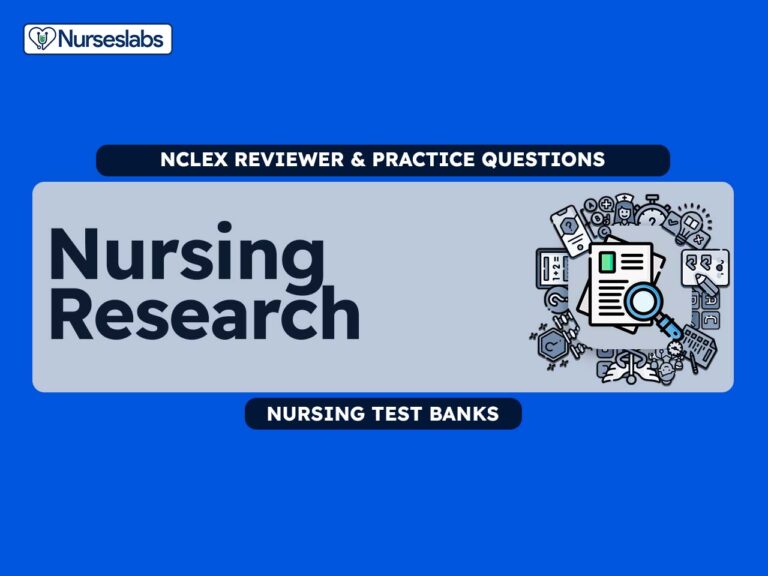
Welcome to your nursing test bank and practice questions for nursing research.
Nursing Research Test Bank
Nursing research has a great significance on the contemporary and future professional nursing practice, thus rendering it an essential component of the educational process. Research is typically not among the traditional responsibilities of an entry-level nurse . Many nurses are involved in either direct patient care or administrative aspects of health care. However, nursing research is a growing field in which individuals within the profession can contribute a variety of skills and experiences to the science of nursing care. Nursing research is critical to the nursing profession and is necessary for continuing advancements that promote optimal nursing care. Test your knowledge about nursing research in this 60-item nursing test bank.
Quiz Guidelines
Before you start, here are some examination guidelines and reminders you must read:
- Practice Exams : Engage with our Practice Exams to hone your skills in a supportive, low-pressure environment. These exams provide immediate feedback and explanations, helping you grasp core concepts, identify improvement areas, and build confidence in your knowledge and abilities.
- You’re given 2 minutes per item.
- For Challenge Exams, click on the “Start Quiz” button to start the quiz.
- Complete the quiz : Ensure that you answer the entire quiz. Only after you’ve answered every item will the score and rationales be shown.
- Learn from the rationales : After each quiz, click on the “View Questions” button to understand the explanation for each answer.
- Free access : Guess what? Our test banks are 100% FREE. Skip the hassle – no sign-ups or registrations here. A sincere promise from Nurseslabs: we have not and won’t ever request your credit card details or personal info for our practice questions. We’re dedicated to keeping this service accessible and cost-free, especially for our amazing students and nurses. So, take the leap and elevate your career hassle-free!
- Share your thoughts : We’d love your feedback, scores, and questions! Please share them in the comments below.
Quizzes included in this guide are:
Recommended Resources
Recommended books and resources for your NCLEX success:
Disclosure: Included below are affiliate links from Amazon at no additional cost from you. We may earn a small commission from your purchase. For more information, check out our privacy policy .
Saunders Comprehensive Review for the NCLEX-RN Saunders Comprehensive Review for the NCLEX-RN Examination is often referred to as the best nursing exam review book ever. More than 5,700 practice questions are available in the text. Detailed test-taking strategies are provided for each question, with hints for analyzing and uncovering the correct answer option.
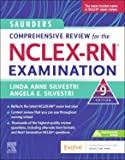
Strategies for Student Success on the Next Generation NCLEX® (NGN) Test Items Next Generation NCLEX®-style practice questions of all types are illustrated through stand-alone case studies and unfolding case studies. NCSBN Clinical Judgment Measurement Model (NCJMM) is included throughout with case scenarios that integrate the six clinical judgment cognitive skills.
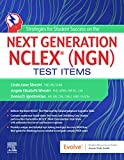
Saunders Q & A Review for the NCLEX-RN® Examination This edition contains over 6,000 practice questions with each question containing a test-taking strategy and justifications for correct and incorrect answers to enhance review. Questions are organized according to the most recent NCLEX-RN test blueprint Client Needs and Integrated Processes. Questions are written at higher cognitive levels (applying, analyzing, synthesizing, evaluating, and creating) than those on the test itself.
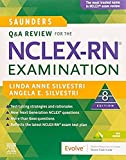
NCLEX-RN Prep Plus by Kaplan The NCLEX-RN Prep Plus from Kaplan employs expert critical thinking techniques and targeted sample questions. This edition identifies seven types of NGN questions and explains in detail how to approach and answer each type. In addition, it provides 10 critical thinking pathways for analyzing exam questions.
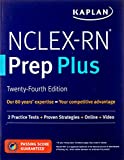
Illustrated Study Guide for the NCLEX-RN® Exam The 10th edition of the Illustrated Study Guide for the NCLEX-RN Exam, 10th Edition. This study guide gives you a robust, visual, less-intimidating way to remember key facts. 2,500 review questions are now included on the Evolve companion website. 25 additional illustrations and mnemonics make the book more appealing than ever.
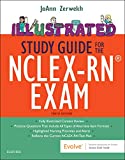
NCLEX RN Examination Prep Flashcards (2023 Edition) NCLEX RN Exam Review FlashCards Study Guide with Practice Test Questions [Full-Color Cards] from Test Prep Books. These flashcards are ready for use, allowing you to begin studying immediately. Each flash card is color-coded for easy subject identification.

Recommended Links
If you need more information or practice quizzes, please do visit the following links:
An investment in knowledge pays the best interest. Keep up the pace and continue learning with these practice quizzes:
- Nursing Test Bank: Free Practice Questions UPDATED ! Our most comprehenisve and updated nursing test bank that includes over 3,500 practice questions covering a wide range of nursing topics that are absolutely free!
- NCLEX Questions Nursing Test Bank and Review UPDATED! Over 1,000+ comprehensive NCLEX practice questions covering different nursing topics. We’ve made a significant effort to provide you with the most challenging questions along with insightful rationales for each question to reinforce learning.
3 thoughts on “Nursing Research Nursing Test Bank and Practice Questions (60 Items)”
Thanks for the well prepared questions and answers. It will be of a great help for those who look up your contributions.
Hi Zac, we’re having some performance issues with the quizzes so we’re forced to change their settings in the meantime. We are working on a solution and will revert the changes once we’re sure that the problem is resolved. Thanks for the understanding!
Leave a Comment Cancel reply

Ask a Librarian
How can I help you today?
A live human is ready to help.

Find & Cite | Research Help | Collections | Services | About
- Cook Library
- Research Guides
- Formulating a Research Question
- Information Literacy in Nursing
- Cultural Competency in Nursing
- Databases and Apps
- Books and Journals
- Clinical Skills
- Nursing Research Videos
Before You Start Searching
Clinical and epidemiological question frameworks.
- Basic Literature Searching
- Advanced Literature Searching
- Searching for Evidence with ABCDE
- Citation Management
- Citing Sources: APA and Other Styles
Step One: Start to formulate a research question or topic.
Aiming for clarity at the beginning of the project can help you get started right. It can be helpful to use one of the question frameworks detailed below.
Step Two: Do some background searching on the topic.
Taking a look in relevant resources to see what's already been written about your topic will help you understand how you can best contribute to the body of literature. It will also help you grasp the terminology around the topic, so that you'll be more prepared to do an effective literature search.
Step Three: Narrow down the question or topic if needed.
You may find that your original topic is too broad. After you have taken the time to evaluate what's already been written about your topic, you'll have a better understanding of what you're interested in.
Step Four: Meet with your librarian.
Try one of these tried and true clinical or quantitative research question frameworks. Not sure where to start? PICO is the most common clinical question framework. and PEO works well for public health and epidemiology.
- Condition, Context, Population
- Aromataris, E., & Munn, Z. (2017). Joanna Briggs Institute reviewer's manual. The Joanna Briggs Institute. Available from JBI Manual for Evidence Synthesis .
- Population, Exposure of Interest, Outcome or Response
- Population or Problem, Intervention or Exposure, Comparison or Control, Outcome
- Heneghan, C., & Badenoch, D. (2002). Evidence-based medicine toolkit. London: BMJ Books. https://www.worldcat.org/title/evidence-based-medicine-toolkit/oclc/62307845
- Population or Problem, Intervention or Exposure, Comparison or Control, Outcome, Study Type
- Methley, A. M., Campbell, S., Chew-Graham, C., McNally, R., & Cheraghi-Sohi, S. (2014). PICO, PICOS and SPIDER: a comparison study of specificity and sensitivity in three search tools for qualitative systematic reviews. BMC health services research, 14, 579. https://doi.org/10.1186/s12913-014-0579-0 .
- Population or Problem, Intervention or Exposure, Comparison or Control, Outcome, Time
- Richardson, W. S., Wilson, M. C., Nishikawa, J., & Hayward, R. S. (1995). The well-built clinical question: A key to evidence-based decisions. ACP Journal Club, 123(3), A12-A12. https://pubmed.ncbi.nlm.nih.gov/7582737/
- Population, Index Test, Reference Test, Diagnosis of Interest
- << Previous: Datasets
- Next: Searching for Evidence >>
- Last Updated: May 7, 2024 9:32 PM
- URL: https://towson.libguides.com/NURS
- Locations and Hours
- UCLA Library
- Research Guides
- Biomedical Library Guides
- Forming Evidence-Based (EBP) Questions
- Reference Sources
- Drugs, Patient Care and Education
- Article Databases
Narrowing a Clinical Question
Two types of clinical questions, what is pico anyway, picott alternatives and additions, pico process in action, using pico to form the research question, tips and tricks.
- Evidence-Based Practice
- Psychological Tests
- Web Resources
- Avoiding Plagiarism
- Citation Guides
- Mobile Applications
- Unit Recommended Online Journals
- Resource Types and Evaluating Information
- Investigate
- Tools and Resources
To begin to develop and narrow a clinical research question it is advisable to craft an answerable question that begins and ends with a patient, population, or problem. These are the beginnings of not only developing an answerable EBP question, but also using the PICO process for developing well-built searchable and answerable clinical questions.
There are many elements to developing a good clinical question. Clinical questions can be further divided into two major areas: Background Questions and Foreground Questions .
Background Questions refer to general knowledge and facts. The majority of the information that can be used to inform answers to background questions are found in reference resources like Encyclopedias, Dictionaries, Textbooks, Atlases, Almanacs, Government Publications & Statistical Information, and Indexes.
Foreground Questions are generally more precise and usually revolve around patient/s, populations, or a specific problem. Crafting an appropriate EBP question will not only inform your search strategy which you will apply to the medical literature but will also create a framework for how to maintain and develop your investigative process.
What are some examples of P ?
- Diabetes mellitus, Type 2 (problem) Obese
- elderly (population)
What are some examples of I ?
- Chlorpropamide
What are some examples of C ?
What are some examples of O ?
- Management of glucose levels
Using the example from the bottom-center we can start forming a research question:
Is Chlorpropamide (intevention) more efficient than Metformin (comparator) in managing Diabetes Mellitus Type 2 (problem) for obese elderly patients (population)?
*Note: It is not necessary to use every element in PICO or to have both a problem and population in your question. PICO is a tool that helps researchers frame an answerable EBP question.
Synonyms can very helpful throughout your investigative and research process. Using synonyms with boolean operators can potentially expand your search. Databases with subject headings or controlled vocabularies like MeSH in PubMed often have a thesaurus that can match you with appropriate terms.
Boolean operators allow you to manipulate your search.
Use AND to narrow your search
eg. elderly AND diabetes
Use OR to broaden your search
eg. myocardial infarction OR heart attack
Use NOT to exclude terms from your search
eg. children NOT infants
- << Previous: Article Databases
- Next: Evidence-Based Practice >>
- Last Updated: May 8, 2024 11:33 AM
- URL: https://guides.library.ucla.edu/nursing
Library buildings are open for UniSA staff and students via UniSA ID swipe cards. Please contact us on Ask the Library for any assistance. Find out about other changes to Library services .
Develop your research question
- Search for your assignment
- Find books and journal articles
- Find evidence (Government and organisation information)
- Data & statistics
- Forgotten Australians
- Clinical skills
- Aged care & mental health
- Mental health resources: 0-65 years
- Finding resources for your assignment
- HLTH 1036: Global and National Health – A1 Task 2 & A2
- HLTH 1047: First Peoples' Health – A1
- NURS 1072: Foundations of Nursing Practice
- NURS 2023: Health of Adults - Nursing Case Study Report
- NURS 2024: Health of Older Adults
- NURS 5164: Best Practice in Adolescent Mental Health
- NURS 3055: Evidence Based Nursing Practice
- NURS 3045: Nursing Context of Practice: Primary Health Care
- UniSA Online - NURS 1066: Living Skills and Life Routines in Aged Care
STEP 1: Understand your research objective
Before you start developing your research question, think about your research objectives:
- What are you trying to do? (compare, analyse)
- What do you need to know about the topic?
- What type of research are you doing?
- What types of information/studies do you need? (e.g. randomised controlled trial, case study, guideline, protocol?)
- Does the information need to be current?
Watch the following video (6:26) to get you started:
Key points from the video
- All good academic research starts with a research question.
- A research question is an actual question you want to answer about a particular topic.
- Developing a question helps you focus on an aspect of your topic, which will streamline your research and writing.
- Pick a topic you are interested in.
- Narrow the topic to a particular aspect.
- Brainstorm some questions around your topic aspect.
- Select a question to work with.
- Focus the question by making it more specific. Make sure your question clearly states who, what, when, where, and why.
- A good research question focuses on one issue only and requires analysis.
- Your search for information should be directed by your research question.
- Your thesis or hypothesis should be a direct answer to your research question, summarised into one sentence.
STEP 2: Search before you research
The benefits of doing a background search :
- You can gather more background knowledge on a subject
- explore different aspects of your topic
- identify additional keywords and terminology
STEP 3: Choose a topic

The resources linked below are a good place to start:
- UpToDate It covers thousands of clinical topics grouped into specialties with links to articles, drugs and drug interaction databases, medical calculators and guidelines.
- An@tomedia This online anatomy resource features images, videos, and slides together with interactive, educational text and quiz questions.
- Anatomy.tv Find 3D anatomical images; functional anatomy animations and videos, and MRI, anatomy, and clinical slides. Test your knowledge through interactive activities and quizzes.
STEP 4: Brainstorm your questions
Now you have explored different aspects of your topic, you may construct more focused questions (you can create a few questions and pick one later).

Learn more:
- Clear and present questions: formulating questions for evidence based practice (Booth 2006) This article provides an overview of thinking in relation to the theory and practice of formulating answerable research questions.
STEP 5: Pick a question and focus
Once you have a few questions to choose from, pick one and refine it even further.

Are you required to use "PICO"?
- PICO worksheet
- Other frameworks
The PICO framework (or other variations) can be useful for developing an answerable clinical question.
The example question used in this guide is a PICO question: How does speech therapy compare to cognitive behavioural therapy in improving speech fluency in adolescents?
Use the interactive PICO worksheet to get started with your question, or you can download the worksheet document.
- Building your question with PICO
Here are some different frameworks you may want to use:
There are a number of PICO variations which can be used for different types of questions, such as qualitative, and background and foreground questions. Visit the Evidence-Based Practice (EBP) Guide to learn more:
- Evidence Based Practice guide
- << Previous: Plan your search
- Next: Search for your assignment >>
- Last Updated: May 3, 2024 12:38 PM
- URL: https://guides.library.unisa.edu.au/Nursing
The text within this Guide is licensed CC BY 4.0 . Image licenses can be found within the image attributions document on the last page of the Guide. Ask the Library for information about reuse rights for other content within this Guide.

Nursing Research: Creating a Research Question
- Creating a Research Question
- Search Terms
- Search Strategies
- Recording Your Research
- Research Tips
- Reading and Understanding Research
- Finding Sources
- Health Statistics
- Grey Literature and Clinical Guidelines
- Research Sites
- Journal Articles
- Books & Other Sources
- Publisher URL
- Interlibrary Loan
Choosing a Topic
Sometimes the most difficult part of the research process is choosing a topic. Here are some tips for selecting a research question that you will enjoy learning about and will ultimately lead to a good grade.
- Read through your assignment. Professors design an assignment outline for a reason. Make sure your topic can and will adhere to their requirements and guidelines.
- Choose a topic you are interested in. If you don't like what you're researching, chances are you won't learn a whole lot or enjoy the process. And really, what's the point of that?
- Browse resources that relate to your course work. Look through a newspaper, magazine, or database for current events or hot topics. Browsing can spark a lot of great ideas and can help you refine your topic.
- Ask for help! There is nothing wrong with asking your professor or a librarian to help you brainstorm ideas.
Where to Start
The links below are great places to start in developing a research question. Browsing current events and hot topics can spark your interest and inspire a topic.
- Alvernia's "Opposing Viewpoints" Collection
- Alvernia's Reference Collection
- Anatomy & Physiology
- Athletic Training Websites
- Google Trends
- Health & Medicine
- Hot Paper Topics
- Hot Topics for Research Papers
- Human Diseases
- National Library of Medicine
- New York Times
- NPR Research News
- Pew Research Center
- Public Agenda's Programs and Reports
- MedLinePlus This link opens in a new window
- Opposing Viewpoints in Context This link opens in a new window
Subject Terms to Consider
Below is a list of subjects that often relate to nursing issues . Considering these subject terms can help you develop a topic or focus your search .
- Nursing research
- Evidence-based nursing
How to Formulate an Answerable Clinical Question
P opulation/patients
I ntervention/indicator
C omparator/control
- P I C O: Formulate an Answerable Question
- Formulating Answerable Clinical Questions
Developing your Research Question
- Creating a Research Question Helps you to write a narrow, focused research question.
Try asking yourself these questions to help develop a research question:
Topic: Obesity
Who? teenagers
What? consumption of high fat foods
Where? school cafeterias
Question : How does the consumption of high fat foods in school cafeterias contribute to teenager obesity?
Topic: Smoke Exposure
Who? children exposed to smoke
What? developmental abilities
Question : How does smoke exposure alter the developmental abilities of children?
Below is worksheet which will help illustrate how a research question develops from a broad topic to a focused question. This could be a helpful resource for you during the process of creating your research question.
Helpful Tools
- bubbl.us - Brainstorming Made Simple
- Critical Thinking Model
- << Previous: Research Steps
- Next: Search Terms >>
- Last Updated: Jan 18, 2024 1:19 PM
- URL: https://alvernia.libguides.com/nursing_research
- Dean's Message
- Mission Statement
- Diversity At VUSN
- Our History
- Faculty Fellows & Honors
- Accreditation
- Privacy Policy
- Academic Programs
- Master of Science in Nursing
- Master of Nursing
- Doctor of Nursing Practice
- PhD in Nursing Science
- Post-Master's Certificate
- Postdoctoral Program
- Special (Non-Degree) Students
- Admissions Information
- Admissions Requirements
- MSN Admissions
- MN Admissions
- DNP Admissions
- PhD Admissions
- Post-Master's Certificates
- Postdoctoral Admissions
- Center for Research Development and Scholarship (CRDS)
- Signature Areas
- CRDS Behavorial Labs
- Research Resources
- Faculty Scholarship Program
- Research Faculty
- Preparing For Practice
- Faculty Practice Network
- Credentialing Process
- Faculty Practice History
- Vanderbilt Nurse-Midwifery Faculty Practice
- What is Advanced Practice Nursing?
- Preceptor Resources
- The Vanderbilt Advantage
- Making A Difference
- Informatics
- Global Health
- Organizations
- Veterans/Military
Examples of Research Questions
Phd in nursing science program, examples of broad clinical research questions include:.
- Does the administration of pain medication at time of surgical incision reduce the need for pain medication twenty-four hours after surgery?
- What maternal factors are associated with obesity in toddlers?
- What elements of a peer support intervention prevent suicide in high school females?
- What is the most accurate and comprehensive way to determine men’s experience of physical assault?
- Is yoga as effective as traditional physical therapy in reducing lymphedema in patients who have had head and neck cancer treatment?
- In the third stage of labor, what is the effect of cord cutting within the first three minutes on placenta separation?
- Do teenagers with Type 1 diabetes who receive phone tweet reminders maintain lower blood sugars than those who do not?
- Do the elderly diagnosed with dementia experience pain?
- How can siblings’ risk of depression be predicted after the death of a child?
- How can cachexia be prevented in cancer patients receiving aggressive protocols involving radiation and chemotherapy?
Examples of some general health services research questions are:
- Does the organization of renal transplant nurse coordinators’ responsibilities influence live donor rates?
- What activities of nurse managers are associated with nurse turnover? 30 day readmission rates?
- What effect does the Nurse Faculty Loan program have on the nurse researcher workforce? What effect would a 20% decrease in funds have?
- How do psychiatric hospital unit designs influence the incidence of patients’ aggression?
- What are Native American patient preferences regarding the timing, location and costs for weight management counseling and how will meeting these preferences influence participation?
- What predicts registered nurse retention in the US Army?
- How, if at all, are the timing and location of suicide prevention appointments linked to veterans‘ suicide rates?
- What predicts the sustainability of quality improvement programs in operating rooms?
- Do integrated computerized nursing records across points of care improve patient outcomes?
- How many nurse practitioners will the US need in 2020?
PhD Resources
- REQUEST INFO
- CAREER SERVICES
- PRIVACY POLICY
- VANDERBILT UNIVERSITY
- VANDERBILT UNIVERSITY MEDICAL CENTER
DISTINCTIONS

- UR Research
- Citation Management
- NIH Public Access
More information on Research
- Apps and Mobile Resources
- Med Students Phase 1
- School of Nursing
- Faculty Resources
More information on Guides and Tutorials
- iPad Information and Support
More information on Computing and iPads
- Library Hours
- Make A Gift
- A-Z Site Index
More information on us
- Miner Library Classrooms
- Multimedia Tools and Support
- Meet with a Librarian
More information on Teaching and Learning
- History of Medicine
More information on Historical Services
- Order Articles and Books
- Find Articles
- Access Resources from Off Campus
- Get Info for my Patient
- Contact my Librarian
More information on our services
- Research and Publishing
- Guides and Tutorials
- Computing and iPads
- Teaching and Learning
- How Do I..?
Nursing Research Guide: Clinical Question Types
- Quick Access
- Intro to EBP
- Clinical Question Types
- Using PICO(T)
- Study Designs
Types of Clinical Questions
Clinical questions may be categorized as either background or foreground. Why is this important?
Determining the type of question will help you to select the best resource to consult for your answer.
Background questions ask for general knowledge about an illness, disease, condition, process or thing. These types of questions typically ask who, what, where, when, how & why about things like a disorder, test, or treatment, etc.
Background questions are best answered by medical textbooks, which are available from platforms such as AccessMedicine and ClinicalKey Nursing
Foreground questions ask for specific knowledge to inform clinical decisions. These questions typically concern a specific patient or particular population, and tend to be more specific and complex compared to background questions. Quite often, foreground questions investigate comparisons, such as two drugs, two treatments, two diagnostic tests, etc.
Foreground questions are best answered by consulting medical databases such as Medline (via PubMed or OvidSP), Cochrane Library, and CINAHL.
All of these resources are available from Miner Library and Williams Library ; many are listed in the "Quick Links" section of the homepage.
You can also access an alphabetic list of Evidence-Based Resources at Miner's website, or a webpage of available Evidence-Based Health Care resources at Williams' website.
It's useful to check the page for your workplace as some resources are only licensed for access at specific locations.
Branch Librarian at URMC

- << Previous: Intro to EBP
- Next: Using PICO(T) >>
- Last Updated: Nov 10, 2023 8:40 AM
- URL: https://libguides.urmc.rochester.edu/nursing-research
Nursing Doctoral Programs: DNP & PhD
- Where to Start?
- Find Articles/Databases
- Reference Resources
- Evidence Summaries & Clinical Guidelines
- Drug Information
- Health Data & Statistics
- Patient/Consumer Facing Materials
- Images and Streaming Video
- Grey Literature
- Mobile Apps & "Point of Care" Tools
- Test Instruments This link opens in a new window
- Framing Research Questions
- Selecting Databases
- Building the Search
- Expanding a Search
- Filtering / Narrowing the Search
- Cited Reference Searching
- Saving Searches
- Alerting Services
- Finding Full Text
- What are Literature Reviews?
- Conducting & Reporting Systematic Reviews
- Finding Systematic Reviews
- Tutorials & Tools for Literature Reviews
- Locating Qualitative Research This link opens in a new window
- Critical Appraisal Resources
- Citing Sources
- Writing/Publishing
- Data Management This link opens in a new window
- Deposit in the Institutional Repository
Defining the Question: Foreground & Background Questions
In order to most appropriately choose an information resource and craft a search strategy, it is necessary to consider what kind of question you are asking: a specific, narrow "foreground" question, or a broader background question that will help give context to your research?
Foreground Questions
A "foreground" question in health research is one that is relatively specific, and is usually best addressed by locating primary research evidence.
Using a structured question framework can help you clearly define the concepts or variables that make up the specific research question.
Across most frameworks, you’ll often be considering:
- a who (who was studied - a population or sample)
- a what (what was done or examined - an intervention, an exposure, a policy, a program, a phenomenon)
- a how ([how] did the [what] affect the [who] - an outcome, an effect).
PICO is the most common framework for developing a clinical research question, but multiple question frameworks exist.
PICO (Problem/Population, Intervention, Comparison, Outcome)
Appropriate for : clinical questions, often addressing the effect of an intervention/therapy/treatment
Example : For adolescents with type II diabetes (P) does the use of telehealth consultations (I) compared to in-person consultations (C) improve blood sugar control (O)?
Framing Different Types of Clinical Questions with PICO
Different types of clinical questions are suited to different syntaxes and phrasings, but all will clearly define the PICO elements. The definitions and frames below may be helpful for organizing your question:
Intervention/Therapy
Questions addressing how a clinical issue, illness, or disability is treated.
"In__________________(P), how does__________________(I) compared to_________________(C) affect______________(O)?"
Questions that address the causes or origin of disease, the factors which produce or predispose toward a certain disease or disorder.
"Are_________________(P), who have_________________(I) compared with those without_________________(C) at_________________risk for/of_________________(O) over_________________(T)?"
Questions addressing the act or process of identifying or determining the nature and cause of a disease or injury through evaluation.
In_________________(P) are/is_________________(I) compared with_________________(C) more accurate in diagnosing_________________(O)?
Prognosis/Prediction:
Questions addressing the prediction of the course of a disease.
In_________________(P), how does_________________(I) compared to_________________ (C) influence_________________(O)?
Questions addressing how one experiences a phenomenon or why we need to approach practice differently.
"How do_________________(P) with_________________(I) perceive_________________(O)?"
Adapted from: Melnyk, B. M., & Fineout-Overholt, E. (2011). Evidence-based practice in nursing & healthcare: A guide to best practice. Philadelphia: Wolters Kluwer/Lippincott Williams & Wilkins.
Beyond PICO: Other Types of Question Frameworks
PICO is a useful framework for clinical research questions, but may not be appropriate for all kinds of reviews. Also consider:
PEO (Population, Exposure, Outcome)
Appropriate for : describing association between particular exposures/risk factors and outcomes
Example : How do preparation programs (E) influence the development of teaching competence (O) among novice nurse educators (P)?
SPIDER (Sample, Phenomenon of Interest, Design, Evaluation, Research Type)
Appropriate for : questions of experience or perspectives (questions that may be addressed by qualitative or mixed methods research)
Example : What are the experiences and perspectives (E) of undergraduate nursing students (S) in clinical placements within prison healthcare settings (PI)?
SPICE (Setting, Perspective, Intervention/phenomenon of Interest, Comparison, Evaluation)
Appropriate for : evaluating the outcomes of a service, project, or intervention
Example : What are the impacts and best practices for workplace (S) transition support programs (I) for the retention (E) of newly-hired, new graduate nurses (P)?
PCC (Problem/population, Concept, Context)
Appropriate for : broader (scoping) questions
Example : How do nursing schools (Context) teach, measure, and maintain nursing students ' (P) technological literacy (Concept))throughout their educational programs?
Background Questions
To craft a strong and reasonable foreground research question, it is important to have a firm understanding of the concepts of interest. As such, it is often necessary to ask background questions, which ask for more general, foundational knowledge about a disorder, disease, patient population, policy issue, etc.
For example, consider the PICO question outlined above:
"For adolescents with type II diabetes does the use of telehealth consultations compared to in-person consultations improve blood sugar control ?
To best make sense of the literature that might address this PICO question, you would also need a deep understanding of background questions like:
- What are the unique barriers or challenges related to blood sugar management in adolescents with TII diabetes?
- What are the measures of effective blood sugar control?
- What kinds of interventions would fall under the umbrella of 'telehealth'?
- What are the qualitative differences in patient experience in telehealth versus in-person interactions with healthcare providers?
- << Previous: Tutorials/Help
- Next: Selecting Databases >>
- Last Updated: May 2, 2024 10:52 AM
- URL: https://guides.nyu.edu/doctoralnursing
Research Topics & Ideas: Nursing
50+ Nursing Research Topic Ideas To Fast-Track Your Project

Finding and choosing a strong research topic is the critical first step when it comes to crafting a high-quality dissertation, thesis or research project. If you’ve landed on this post, chances are you’re looking for a nursing-related research topic , but aren’t sure where to start. Here, we’ll explore a variety of nursing-related research ideas and topic thought-starters, including general nursing, medical-surgical nursing, pediatric nursing, obstetrics and gynaecological nursing, ICU and mental health nursing.
NB – This is just the start…
The topic ideation and evaluation process has multiple steps . In this post, we’ll kickstart the process by sharing some research topic ideas within the nursing domain. This is the starting point, but to develop a well-defined research topic, you’ll need to identify a clear and convincing research gap , along with a well-justified plan of action to fill that gap.
If you’re new to the oftentimes perplexing world of research, or if this is your first time undertaking a formal academic research project, be sure to check out our free dissertation mini-course. In it, we cover the process of writing a dissertation or thesis from start to end. Be sure to also sign up for our free webinar that explores how to find a high-quality research topic.
Overview: Nursing Research Topics
- General nursing-related topics
- Medical-surgical nursing
- Pediatric nursing
- Obstetrics and gynaecological nursing
- ICU nursing
- Mental health nursing
General Nursing Research Topics & Ideas
- The impact of cultural competence on patient care in the UK
- The importance of evidence-based practice in nursing for patients with HIV/AIDS
- The effects of workplace stress on nurse well-being and performance
- The role of nurse-patient communication for patients transitioning from adolescent to adult care
- The impact of technology on nursing practice and patient outcomes
- The importance of interdisciplinary collaboration in healthcare for the rehabilitation of patients post-surgery
- The effects of fatigue on nurse performance in the emergency room
- The impact of nurse staffing levels on patient outcomes in rural areas
- The effectiveness of nurse-led interventions in managing chronic conditions: a case study of diabetes
- The impact of patient-centred care on health outcomes for the elderly
- The importance of patient safety in nursing: bedside nurse vigilance
- The effects of empathy and compassion in critical care nursing
- The role of nursing in disaster preparedness and response: a case study of the Haiti earthquake of 2021
- The impact of the level of nursing education on patient outcomes
- The importance of ethical considerations in frail care nursing practice
Topics & Ideas: Medical-Surgical Nursing
- The impact of bedside care on patient outcomes in medical-surgical units
- The role of the nurse in managing post-operative patient pain
- The effects of nurse-patient ratios on patient outcomes in medical-surgical units
- A systematic review of different approaches to patient education in medical-surgical units
- The relationship between nurse-patient communication and patient satisfaction in medical-surgical units: perspectives and recommendations to improving patient satisfaction
Topics & Ideas: Pediatrics Nursing
- The impact of family-centered care on pediatric patient outcomes with sickle cell anemia
- The role of nursing interventions in promoting developmental and behavioral health in pediatric patients
- The effects of play therapy on anxiety and pain in pediatric patients during hospitilisation
- A systematic review of different approaches to pain management in pediatric cancer patients
- The relationship between parent involvement and post-operative patient outcomes in pediatric units

Ideas: Obstetrics and Gynecological Nursing
- The impact of nurse-led prenatal care on maternal and fetal outcomes in African American communities
- The role of the nurse in promoting sexual and reproductive health for women in the UK
- The effects of midwifery care on maternal satisfaction of primiparous women and birth outcomes
- A comparative study of different approaches to childbirth education for expectant mothers and partners: perceptions of control
- The relationship between lactation support and breastfeeding success of primiparous women
Topics & Ideas: ICU Nursing
- The impact of nursing interventions on patient outcomes in intensive care units in a developing country
- The role of the nurse in managing palliative and end-of-life care in the ICU
- The effects of family presence on patient outcomes and satisfaction in the ICU: A systematic review of the literature
- A comparative study of different approaches to pain management for trauma patients in the ICU
- The relationship between nurse-patient communication and geriatric patient outcomes in ICU

Topics & Ideas: Mental Health Nursing
- The impact of nurse-led therapy on adolescent patient outcomes in mental health settings
- The role of the nurse in promoting recovery and resiliency in mental health patients through group interventions
- The effects of mindfulness-based interventions on stress and anxiety in mental health patients: A systematic literature review
- A comparative study of the role of nurses in applying different approaches to patient education in mental health settings
- The association between nurse-patient therapeutic alliance and patient outcomes in mental health settings
Nursing Dissertation & Theses
While the ideas we’ve presented above are a decent starting point for finding a nursing-related research topic, they are fairly generic and non-specific. So, it helps to look at actual dissertations and theses to see how this all comes together.
Below, we’ve included a selection of research projects from various nursing-related degree programs to help refine your thinking. These are actual dissertations and theses, written as part of Master’s and PhD-level programs, so they can provide some useful insight as to what a research topic looks like in practice.
- Nursing Workload and Interventions of Licensed Nurses in Nursing Homes: An Observational Time and Motion Study (Kang, 2021)
- Missed Nursing Care: Accounting for Education, Experience, and Job Satisfaction in Registered Nurses (Bechard, 2021)
- Examining Predictors of Attitudes and Knowledge of Registered Nurses and Nursing Students in Tennessee toward Pregnant and Perinatal Women with a Substance Use Disorder (Patrylo, 2021)
- A Program Evaluation of the Organizational Readiness for Pathway to Excellence at Two Community Hospitals (Behling, 2021)
- The Impact of Covid-19 Pandemic Policy Decisions on the Wellbeing of Nursing Home Residents in Missouri (White, 2022)
- Battling A Parallel Pandemic: An Evaluation of Sustainable System-Level Nursing Support in Response To COVID-19 (Gifford, 2022)
- Holistic Nursing Process Maps: a Tool for Student Nurses to Operationalize the Nursing Process to Increase Clinical Reasoning (Reyes, 2022)
- Satisfaction and Work-Life Balance in Undergraduate Nursing Faculty: A Mixed-Methods Study (Crawford, 2021)
- The Effect of Mindfulness Meditation on the Stress, Anxiety, Mindfulness, and Self-Compassion Levels of Nursing Students (Heinrich, 2022)
- Effectiveness of Simulation-Based Case Studies in Undergraduate Nursing Students (Becnel, 2022)
- A Telehealth Simulation Experiment: Exploring Prebriefing (Owen, 2022)
- Perceptions of Lateral Violence Among Vocational Nursing Students, Associate Degree Nursing Students, and Bachelor’s Degree Nursing Students (Martha, 2022)
- Nurse Educators’ Description of Ethics from a Disciplinary Perspective: A Qualitative Descriptive Research Study (Cuchetti, 2022)
- A Literature Review of the Relationship Between Oral Health and Pneumonia Risk in the Geriatric Nursing Home Population (Swift, 2021)
Looking at these titles, you can probably pick up that the research topics here are quite specific and narrowly-focused , compared to the generic ones presented earlier. This is an important thing to keep in mind as you develop your own research topic. That is to say, to create a top-notch research topic, you must be precise and target a specific context with specific variables of interest . In other words, you need to identify a clear, well-justified research gap.

Get 1-On-1 Help
If you’re still feeling a bit unsure about how to find a research topic for your nursing dissertation, thesis or research project, check out our private coaching services below.

You Might Also Like:

To learn from the GRAD Coach is a lofty goal for me. I am unable to express my gratitude for your teaching style. I need assistance with my thesis as a master’s in nursing candidate. Please assist me.
Submit a Comment Cancel reply
Your email address will not be published. Required fields are marked *
Save my name, email, and website in this browser for the next time I comment.
- Print Friendly

School of Nursing
- What is EBP?
Background vs. Foreground
Pico examples, asking different types of questions, pico resources & worksheet.
- Evidence Appraisal
- Clinical Tools and Databases
- Other Resources
Evidence based practice requires that clinicians make use of the best research they can find to help them in decision-making. To find that research efficiently, the clinician must ask a well-designed clinical question with all the elements that will lead to finding relevant research literature.
The first step in doing this is to determine the type of question: background or foreground. The type of question helps to determine the resource to access to answer the question.
Background questions ask for general knowledge about a condition or thing.
- Broaden the scope - "The Forest"
- Provides basics for a a greater grasp of concepts
- Typically found in textbooks, guidelines, point-of-care monographs, encyclopedias, or topic reviews
- A question root (who, what, when, etc.) with a verb
- A disorder, test, treatment, or other aspect of healthcare
The background question is usually asked because of the need for basic information. It is not normally asked because of a need to make a clinical decision about a specific patient.
Foreground questions ask for specific knowledge to inform clinical decisions or actions.
- Focused in scope - "The Trees"
- Requires a grasp of basic concepts to fully comprehend
- Typically found in journals and conference proceedings
- Have 3 or 4 essential components (see PICO below)
PICO is a mnemonic used to describe the four elements of a good clinical foreground question:
P = Population/Patient/Problem - How would I describe the problem or a group of patients similar to mine?
I = Intervention - What main intervention, prognostic factor or exposure am I considering?
C = Comparison - Is there an alternative to compare with the intervention?
O = Outcome - What do I hope to accomplish, measure, improve or affect?
Fill in the blanks with information from your clinical scenario: THERAPY In_______________, what is the effect of ________________on _______________ compared with _________________?
PREVENTION For ___________ does the use of _________________ reduce the future risk of ____________ compared with ______________? DIAGNOSIS OR DIAGNOSTIC TEST Are (Is) ________________ more accurate in diagnosing _______________ compared with ____________? PROGNOSIS Does ____________ influence ______________ in patients who have _____________? ETIOLOGY Are ______________ who have _______________ at ______________ risk for/of ____________ compared with _____________ with/without______________? MEANING How do _______________ diagnosed with _______________ perceive __________________? Melnyk, B. M., & Fineout-Overholt, E. (2011). Evidence-based practice in nursing & healthcare: A guide to best practice . Philadelphia: Wolters Kluwer/Lippincott Williams & Wilkins.
- PubMed PICO Tool
- TRIP Database PICO Builder
- PICO Worksheet
- << Previous: What is EBP?
- Next: CINAHL >>
- Last Updated: Apr 15, 2024 9:34 AM
- URL: https://libguides.ohsu.edu/nursing
- Practice Test
- Fundamentals of Nursing
- Anatomy and Physiology
- Medical and Surgical Nursing
- Perioperative Nursing
- Psychiatric Mental Health Nursing
- Maternal & Child Nursing
- Community Health Nursing
- Pathophysiology
- Nursing Research
- Study Guide and Strategies
- Nursing Videos
- Work for Us!
- Privacy Policy

- Nursing Notes
200+ Great Ideas of Nursing Research Topics to Get Started

Running out of topic ideas for your nursing research paper?
Stay on this page to find really cool and helpful lists of interesting research topics for your nursing dissertation or thesis.
What are Some Cool topics to Research?
Whenever students are asked to work on a research paper or present their thesis, the very first concern for them is choosing a unique, interesting, and research-worthy topic that makes their research significant and has enough future scope.
When it comes to finding a unique topic without working on something that’s already been done, most of the nursing and healthcare students struggle. A good research topic should be unique, relevant to current times, and have future scope as well. And you’ll find all three qualities in the topics mentioned below:
1. Primary Healthcare Nursing Research Topics
Primary healthcare refers to essential or basic health care service based on socially acceptable and scientifically sound methods and technology. Since it includes physical, social, emotional, and mental well-being, there are many topics for nursing scholars to explore:
- Strengthening primary healthcare system as the first line of referral system
- Introduction of home health nursing in the community set up
- Primary health care delivery system clinical pathways
- From home visits to home health care: strengthening primary health care delivery system
- Expanding the roles of community health nurses
- Millennial models of health care system
- Strengthening disease surveillance program in the community health set-up
- Home health care of debilitated patients
- Acceptance of evidence-based practice in the primary health care
- Strengthening continuity of care in the community / home health care post hospitalization
- Physical rehabilitation and occupational therapy in the community health care setting
2. Good Research Topics in Healthcare Management
Healthcare management is the management, administration, or oversight of healthcare systems, hospitals, public health systems, and other medical facilities. Since it comprises the overall management of all the work of the hospitals, it opens avenues for a lot of research work. Take, for example, the following:
- Evaluating who is responsible for failure in surgeries?
- Healthcare Contracts Limitations
- Medical Home Service
- Analysing nursing channels that nurses can use for becoming physicians?
- Gender Bias in Nursing Profession
- Starting Private Practice as a Nurse
- Medicare: Pros and Cons
- What are the most appropriate methods for increasing staff retention in a health care setting?
- Nursing Uniform Code Rules
- Role of nurses in enhancing a hospital quality improvement
- Legal Risks with Non-English Patients
- Medical Marijuana: Risk, Benefits, and Management Rules
- Shortage of Men in Healthcare
- Health tracking apps for continuity of care post discharge to home
- Telehealth: the impact of virtual care to urban and rural areas
- Strategic referral system to prevent tertiary hospital congestion
- Clinical pathways for referral system
- Drive-thru pharmacy
- Strenghtening the roles of social works and social workers in the health care team
- Case management approach in the healthcare delivery system
- Defining and application of Expected Length of Stay in patient management
- Impact of case managers in Expected Length of Stay and patient outcomes
- Redefining hospital cultures on bed rest versus mobilization
- Redefining hospital cultures on diet and food services
- Redefining hospital cultures on the assumption of the sick roles
- Strict implementation of Expected Length of Stay to prevent hospital congestion
- Roles of Case manager in the Clinical pathways
- Case Manager as a new nursing role an specialization
- Nurse navigator as a new form of nurse entrepreneurship
- Case management clinical pathway for smooth admission, patient flow and continuity of care after discharge
- Increase nursing specialization
- Internet savvy for healthcare providers
3. Nursing Research Topics about Pain Management
Pain management, in nursing, includes study of all the interventions nurses can make during their hospital hours – mainly to relieve a patient’s pain or ailments through medicinal interventions. Pain is complex, with many treatment options such as therapies, medicines, and also mind-body techniques. Nursing research scholars can research about the following topics:
- Pain management in children suffering from life-limiting illnesses: learning about the best practices
- Headache Treatment Protocol
- A closer look at hemophilia patient’s pain management
- Myofascial Pain Rehabilitation
- Labor and delivery: best practices for pain management
- Using Opioid for Rheumatoid Arthritis
- Fetal pain perception: analysis by medical experts
- Innovative Injection Use
- Therapeutic Injections: Cons & Pros
- Cognitive hypnotherapy application: how effective are they in pain management?
- Evaluating the effectiveness of Benson’s relaxation therapy as a pain management practice.
- Post-discharge pain-management strategies: evaluating their effectiveness in a health care setting?
- Phantom Pains Phenomenon
- Pain management in cancer patients: best practices according to expert nurses
- Spinal cord nerve injury related to chronic constipation
- Mobile pain unit
4. Pediatric Nursing Research Topics
In Pediatric nursing, the nursing staff is responsible for medical care of the children and neonates, and adolescents – mainly in a day-clinic or the in-patient setting. Though the main role of child health nursing is administering procedures and medicines to all children as per their prescribed nursing care plans, the research scholars can write papers on the following topics:
- Speech Disorders Therapy
- ADHD Causes & treatment
- Prevalence of misdiagnosis in child health or paediatric ward
- Vaccination & Autism
- Systematic review of range of child health nursing services in UK
- Antibiotic Resistance in Preschool Children
- Mental and Emotional health of children under 10
- Eating Disorders in Children
- Social Media Impact on Teenagers
- Seizures Causes in Infants
- Teething issues in children under 10
- Psychological Aspects of Infant Care
- Use of social media platforms in preparation and prevention of hospital phobia among pediatric groups
- Family engagement in the pediatric care by using hospital information system
- Safety and efficacy of telehealth for pediatric patients
What are the Current issues in Nursing?
Nursing is a high-pressure job. It demands patience, determination, and perseverance. As a high-pressure job, it gets quite challenging and leads to issues from time to time. Some of the examples being staff shortages, long working hours, workplace hazards, personal health, and workplace violence. All of these can be addressed in nursing research papers:
- Analysis of the registered nurse workforce and the relationship to work environments
- Transforming loss: A developing concept for nursing
- Nursing Staff Shortages
- Nursing Practitioners
- Meeting Patient Expectations: A challenge for nurses
- Biggest obstacles nurses face in their education and maintaining career alongside
- Workplace Violence and Hazards Nurses face
- Diversity in Healthcare
- Importance of Community Nursing
- Future of Nursing in the Digital Age
- What measure can a nurse take for helping a person with their eating disorder?
- Clinical Nurse Roles
- How can nurses help in treating patients who already know they don’t have a survival rate?
- Ethics and Homeless People Treatment
- Critical Care Nursing Management
- A nurse’s role in helping and assisting patients with chronic diseases?
- Nursing Theorists Works
- Remote Intensive Care Unit
- Stress Management Practice for Nurses Working in Night Shifts
- Between Career & Professional Service
- Preceptorship and training after distant education program and online learning
- Centralized infectious disease surveillance
- Centralized reporting of chronic diseases
- Patient become more educated: the pros and cons of social media
- Fake news and misinformation on health related issue with the rise of social media platforms
- BPO and call centers for medical procedures booking and admission to decongest emergency room
- Application of BPO in the quality assurance monitoring in documentation
What are Some of the Research Topic Ideas in Surgical Nursing?
- Moral distress among nurses in Surgical units
- Patient’s satisfaction and experience about care provided by nurses in the surgical units
- Organizational effects on patient satisfaction in surgical units
- Medical-Surgical nurses and their perceived leadership abilities as responders in patient deterioration events
- Role of Nurses in Surgical Wards
- Medical-surgical nursing: Critical thinking in client care
- Pain assessment and management in surgical nursing
- Understanding technology in contemporary surgical nursing
- Understanding Medical surgical nursing as an integrated approach
- Standardising fast-track surgical nursing care
- Mobilization team for the fast recovery of post-operative patients
- Use of telehealth for pre-operative preparations and elective surgical admissions to lessen hospital length of stay among surgical patients
- Continuity of care post surgery in the community health care
What have been some of the more important nursing research questions discussed in nursing class?
If you are here to find more important topics for your nursing dissertations, then scroll through this section for topics that are often discussed in nursing classes. Nursing research articles and topics change over time. However, we find these relevant to current times and challenges in healthcare:
1. Research topic ideas for Midwifery Nursing
Nurse-midwife, as a licensed healthcare professional, specialises in child birth and also women’s reproductive health. Apart from attending pregnant women during childbirth, they are responsible for several roles during emergencies, and pre and postnatal care. Hence, opening avenues for research topics such as:
- Role of nurses in improving patient safety during childbirth: Evidence from obstetric trauma
- Evaluate the impact of delayed umbilical cord clamping after child birth
- Maternal & Neonatal Practices in Rural Areas
- Emerging trends in obstetrical and midwifery nursing
- First Antenatal Appointment Analysis
- Limiting interventions during a low-risk labour
- Mental Illness & Post-natal Period
- Analysing the role of prenatal care in pregnant women
- Shift Study Midwives & Length
- Evaluating impact of AIDS and Hepatitis B in the pregnant women
- Self-Instruction Kits & Natal Safety
- Studying advanced trends in obstetrics and gynaecology
- Midwifery Continued Care
- Evaluating pros and cons of labouring in water
- Gestational Weight Gain Challenges
- Vitamin D’s role as a supplement during pregnancy
- Studying clinical reasoning integration into midwifery practice
- Obese Pregnant Women Safety Rules
- A decade after BEmONC and CEmONC
2. Health Promotion Research Topics
Health promotion mainly comes from behavioral social science which draws from the environmental, biological, psychological, medical, and physical sciences for promoting health and preventing diseases. For health promotion, the research topics include the following:
- Healthcare Dangers of Digital Age
- Benefits and Shortages of Telemedicine
- Healthy living and Preventive medicine for Senior Citizens
- Role of School Nurses
- Obstacles for Smoking cessation
- Healthy Eating & Sports
- Causes of Youth Inactivity
- Roles of Parents for Healthy Lifestyle of Children
- Obesity and Mental Stability
- Pharmacist Responsibility
- Social Media and Educational Strategies
- HealthBank as new form of medical insurance inside the hospital organization
- Collaboration of private health insurance company with public and private hospitals
3. Adult Research Topics for Nursing Students
As a nursing scholar, you can also write research papers on adult healthcare, disease prevention, and management. Take, for example, reasons behind anxiety disorders in adults. Find more topics in the list below:
- Nurses’ experiences with urinary catheter insertion: A qualitative focus group study
- Clinical Cardiology Innovations
- CV Imaging Process
- Migraine Case Example
- Bipolar Disorder Non-Chemical Practices
- Mental Health & Psychiatric Care in Adults
- Online nursing education program
- Self care in Nursing
- Home health care for longterm vented patients
- Clinical Instructor, Preceptorship, Educator and Professor as specialized field requiring licensure
- Specialization program in nursing education
4. Geriatric Care Nursing Journal Topics
Nurses working in Geriatric care and management are responsible for coordinating and planning care of the elderly people dealing with mental or physical disabilities. Some of the research work topic ideas for geriatric care include the following:
- Cerebrovascular Disease and Stroke in Elderly people
- Pain in elderly people: Assessment and Management
- Joint Disorders Study in Elderly Population
- Rapid Nutritional assessment in Elderly
- Alzheimer’s Disease
- Bladder Cancer Therapy
- Atrial Fibrillation Study
- Critical Care Requirements
- Cardiovascular Risk Reduction
- Geriatrics Ethics
- Restless Legs Syndrome
- Parkinson’s Disease Precautions
- Geriatric care clinical pathways of care: holistic approach
What are the recent nursing research paper topics?
If you’re facing the challenge of choosing a recent nursing research topic, we’ve got your back. Many nurses, including experienced and freshers, are faced with this challenge at some point. But there’s no need to panic. So, without further ado, let’s jump-start the list of most recent research topics for nursing students:
1. Women’s Health Nursing Research Topics
Research topics related to women’s health are always trending, relevant, and have future scope as well. Hence, these topics are still worth exploring and researching:
- Culture affects women’s health
- Substance Abuse and Addiction in Women
- Menopause Challenges
- Infertility Ethical Rules
- Ovarian Cancer and Ovarian Disorder Analysis
- Modern Neonatal Practices
- Pregnancy Prevention Measures
- Sepsis after labour
- Cosmetic Dermatology
- Cystic Fibroids
- Sleep Disorders in Women
- Reproductive Endocrinology
- Women’s Sexual Health Disorders
- HPV and Cervical Cancer
- Vaginal Atrophy Causes
- Sleep disturbances in Women
2. Mental Health Nursing Research Articles Topics
Research papers focusing on mental health are still one of the most read and referred papers. And there’s still more scope for research on topics such as:
- Evaluating the concept of Integrated Mental and Physical Health Care
- Psychiatric Nursing and Mental Health
- Possible skills required for Nurses in Mental health care setting
- Assessing the mental health of nurses
- Depression Causes
- Schizophrenia Diagnostics
- Alcohol Addiction Disorders
- Bipolar Disorder
- Studying the impact of PTSD in the Army Veterans
- Impact of Video Games on Teenage Aggression
- Stress Among Police Officers
- Psychiatric Patient Ethics
- Forbidden Substances: Prevention and Use
- Bioterrorism Medicine
- Physical Traumas & Recovery Methods
- Application of Nursing Case Management in Psychiatry
Nursing leaders have called for research focusing on which of the following topics?
If you’d like to take an expert’s opinion before choosing a topic for your nursing dissertation, this section will be helpful. Our list of best nursing research topics doesn’t end here. We’ve got here more interesting topics that are recommended by nursing leaders and experts. Take a look at some more relevant topics:
- Preterm Labor Dangers
- Labor and Delivery Management Practices
- Saving Mother & Child Challenges
- Abortion Care Ethical Side
- Adolescent Gynecology Education
- Antenatal Care Recommendations
- Hypertensive Disorders Causes
- Newborn Resuscitation Rules
- Caesarean Section Preparation
- Delivery Room Behavior Checklist
- Nurses play vital roles in healthcare. Why are they invisible in the media?
- Increasing nursing research capacity: The roles of nurse scientists within healthcare systems
- Microeconomics and macroeconomics for sources of hospital funds
- Diverting patients and funds to economical services
- Culture vs evidence based practice
- Social media influencer in health education dissemination
- Acceptance of evidence based practice in the hospital
- Impact of socio-cultural nursing to evidence-based practice
- Hindrances in the implementation of evidence-based practice
- Nursing faculty shortage and brain-drain
- Online continuing professional education and development
Academic Writing Service: Work Directly With the Experts
The are list of best nursing research paper topics ends here. However, we still have something helpful for you. Writing a dissertation or a nursing paper is time consuming – needless to mention the mental exertion. That explains why the majority of students prefer seeking research writing help.
Take, for example, apessay.com , a place where you can get in touch with registered experts who have successfully passed their competency examinations to provide academic writing service at an affordable rate. The three USPs include plagiarism free content, complete privacy and security standards to protect your personal info, and money-back guarantee.

What makes apessay.com academic writing service unique is you can work in direct cooperation with your preferred writer and consult them for everything – from choosing a relevant topic to revisions for final submission.
Feel free to get professional help from nursing research paper writing service which will take care of your nursing papers online.
Final Thoughts
Nursing research topics for a dissertation or thesis should not be difficult to find through the ideas suggestion above. Just make sure that you provide a twist (segment or expand the topic, perhaps) and come up with a unique topic for your paper.
During the initial stages of finalising a nursing research topic, you can struggle with a lot of choices or overwhelming information. However, when you start to consider a research topic’s limitations and scope, and outline your topic into a question, you’ll be able to get a better understanding of the topic you can manage in terms of workload.
We hope these nursing research topics mentioned above help you find that unique thesis statement or idea you’re looking for. In case you’re still having a tough time making a choice, leave us a comment or drop a mail, and we will direct you to better resources.
- https://www.journals.elsevier.com/applied-nursing-research/recent-articles
- https://www.syberscribe.com.au/blog/10-emerging-trends-healthcare-technology-2019-beyond/
- https://www.purdueglobal.edu/blog/nursing/top-10-nursing-trends/
- http://ojin.nursingworld.org/
RELATED ARTICLES MORE FROM AUTHOR
Evidence-based practice in nursing: beyond the scientific proof of care, nursing research definition: the importance and nurses roles.
It’s was very helpful for me
Disparities in enumeration of staff nurses in developing countries are not researched on.
LEAVE A REPLY Cancel reply
Save my name, email, and website in this browser for the next time I comment.
290 Good Nursing Research Topics & Questions
Florence Nightingale is called “the mother of modern nursing.” She was the first one who started incorporating research into her practice. While providing patients with health care and support, nurses observe things that may need further investigation. This way, they become not only caretakers but also scientists.
Our specialists will write a custom essay specially for you!
Research topics in nursing are a way to gain valuable evidence-based knowledge while providing patient care. Moreover, they offer an opportunity to help other nurses by contributing to global healthcare. Some of the most pressing nursing research questions concern medical surgery, midwifery, and geriatrics, as well as the issues of leadership and management.
Need some inspiring topics for nursing students? Look no further! This article by Custom-writing.org experts contains 290 hot nursing research topics, as well as useful additional information and writing tips.
- 🔝 Top 10 Topics
- ☑️ How to Choose a Topic?
- 🐥 Pediatric Topics
- 👴 Geriatric Topics
- 🍼 Midwifery Topics
- 💆 Mental Health Topics
- 🏊 Health Promotion Topics
- 💡 Topics for Discussion
- 🔝 10 Research Questions
- 🔢 Quantitative Research
- 🔬 Qualitative Research
👋 Conclusion
🔝 top 10 nursing research topics 2024.
- The social effect of the opioid crisis.
- Cancel culture and women’s health.
- Economic aspects of euthanasia.
- Nursing adaptation for a digital era.
- The gender pay gap in nursing.
- Health issues of immigrant women.
- Should futile medical care be provided?
- Ways to improve diversity in nursing.
- Ethics of artificial hydration and nutrition.
- Overcoming vaccine hesitancy during pregnancy.
☑️ Research Topics in Nursing: How to Choose?
BSc students and interns often find it challenging to come up with a nursing research paper topic. Healthcare covers a lot of very diverse topics. It’s easy to get confused while trying to choose the most interesting one.
First of all, t is very important to narrow your focus. If the problem you’ve chosen is too large, it can be impossible to examine it properly. Remember: you don’t have to solve world problems in order to contribute to medical science. Choose a current topic which already has plenty of literature studies , and add something new to it. There are interesting nursing research questions in any area, be it social work, psychology, obstetrics, or clinical nursing.
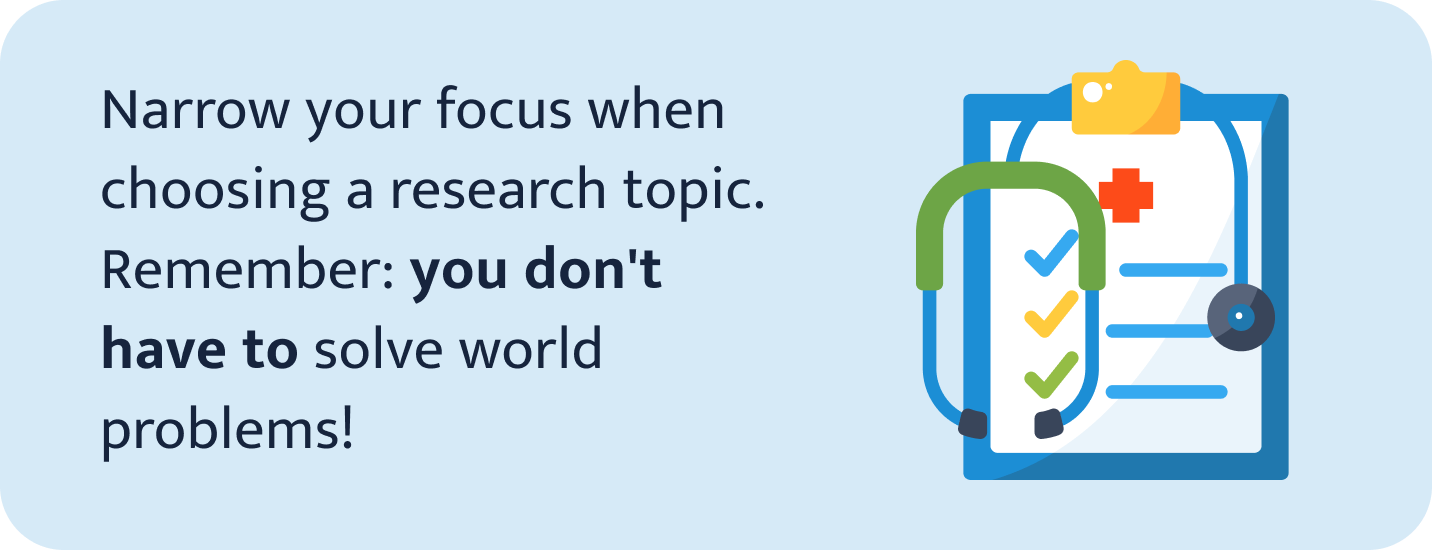
You can choose a topic based on your personal experience. It can be something you observe in your family or an issue that made you interested in the nursing profession in the first place. You can look at the situation in your hometown or city to help you come up with an idea for evidence-based practice nursing research topics.
Just in 1 hour! We will write you a plagiarism-free paper in hardly more than 1 hour
📜 Nursing Research Topics
Once you’ve chosen your area of interest, you are ready to formulate your thesis and write a research proposal. Below is a list of research questions examples for you to choose from.
🐥 Pediatric Nursing Research Topics
Ways of enhancing language development for children with developmental disabilities
- Evaluation of pragmatic language patterns in autistic children
- Taking care of children with congenital heart disease : psychological issues
- Childhood cancer treatment optimization: new ways
- Children with cancer and their families: psychological issues
- Cancer: health service delivery efficiency
- Childhood obesity: a population health issue
- Radiation therapy: the response of the hematopoietic system in oncology patients
- Leukemia cells and the immune system: mechanisms of interaction
- Childhood acute leukemia : the use of molecular markers in diagnosis
- Blindness in children receiving oxygen therapy : risk-reducing strategies

- Early life exposures that promote heart disease later in life
- Role of early-life exposure to endocrine-disrupting chemicals in childhood obesity
- Obesity in children and adolescents : prevention strategies
- Childhood obesity and other cardiovascular risk factors: epidemiologic research
- Childhood obesity: identification, screening, prevention, and management
- Stem cells and their usage in the treatment of pediatric diseases
- Early-life exposure to air pollution: health effects
- Prenatal exposure to nicotine: health effects
- Effects of early life stress on metabolic and cognitive development of children
- Asthma in children: diagnosis and management
- Asthma in children : monitoring techniques
- Opportunistic fungal infections: pathogenesis and treatment
- HHV6: pathogenesis, immunology, and treatment
- Meningitis in children: prevention and vaccination
- Vaccination against influenza in children: reactions and complications
- Common measles complications in children
- Surfactant replacement therapy for premature infants: beneficial effects
- Animal models for respiratory diseases: the investigation of pathogenesis
- Cells and molecules in lung health and disease: understanding the function
- Neurotrophin and neurotransmitter receptors: a molecular study
- New therapeutic approaches to developmental diseases of the nervous system
- Movement disorders in children: understanding and treatment
- Tourette syndrome in children: causes and treatment
- Neuroblastoma in children: understanding racial differences
- Understanding Metabolic Syndrome: symptoms and causes
- Anorexia and related changes in brain function and behavior
- Eating disorders in children : effects on growth and health
- Infant nutrition: prevention of obesity and eating disorders
- ADHD medication for children: long-term effects
- ADHD in children: efficacy of dance and music therapy
- Efficacy of mind-body therapy in children with ADHD
- Autism in children : benefits of meditation techniques
- Ear infections in children: diagnosis and treatment
- Acute renal insufficiency: nursing care and treatment
- Childhood nephrotic syndrome : nursing care and management
- Kidney stones in children: preventive strategies
- Hypertrophic cardiomyopathy: development and symptoms
- Hypoplastic left heart syndrome: management strategies
- Type 1 diabetes in children: genetic and environmental factors
- Children with type 1 diabetes from ethnic minorities: risk factors
👴 Geriatric Nursing Research Topics
- Age-Related Changes in Health: cardiovascular system
- Age-Related Changes in Nervous System and Cognition abilities in older adults
- Physiologic changes in the musculoskeletal system in older adults
- The effects of aging on the immune system
- Vaccination for older adults: benefits and challenges
- Urinary tract infections in older adults: risk factors and diagnosis
- Malnutrition in older adults: consequences and effects on organ systems
- Gastrointestinal tract disorders in older age: nursing care strategies
- Nursing: long-term care facilities
- Sensory system changes and impairments in older adults: nursing care strategies
- Assessment of physical function in older adults: effects of regular physical activity
- Oral health conditions in older adults: effects and treatment
- Ways of improving oral care for older people
- Oral hydration in older adults: ways of maintaining
- Dehydration in older adults: prevention, recognition, and treatment
- Diet as a risk factor for dementia

- Personalized diets for older adults and their role in healthy aging
- The role of diet in reducing the risk of osteoporosis
- Family caregiving of older cancer patients: psychological issues
- Taking care for seniors with chronic illness : psychological issues
- Risk factors for functional decline in older patients: ways of optimization
- Physical environment as a risk factor for functional decline in older patients
- Later-life depression: cause and risk factors
- Ophthalmic care for older patients: nursing strategies
- Medication adherence in patients with dementia : development and implementation of interventions
- Use of machine learning in predicting dementia in older adults: effectiveness and accuracy assessment
- Alzheimer’s disease : biological mechanisms and preventive measures
- Cognitive therapy for older patients with Alzheimer’s disease: effectiveness and strategies
- Delirium in elderly patients: prevention strategies
- Massage Therapy vs. Simple Touch to Improve Pain and Mood in Patients with Advanced Cancer: A Randomized Trial
- Improving pain management in older patients: care strategies
- Falls and injury risk in older adults: prevention and management
- Adverse drug effects in elderly patients: interventions and care strategies
- Use of physical restraints : ethics of the issue
- Ethnicity as a risk factor for pressure ulcer development
- Excessive sleepiness as a risk factor of cognitive decline in elderly patients
- Alcohol use disorders in elderly patients: care strategies
- Substance use disorders in older adults: treatment and care options
- Management of sepsis in critically ill elderly patients
- Complications in critically ill patients due to prolonged hospital stay
- Heart failure in older adults: current therapeutic options
- Care of elderly surgical patients: ways of optimization
- The concept of geriatric dehydration
- Perioperative care of older adults: nursing strategies
- Medical emergencies associated with cancer treatment of elderly patients
- Cancer surgery in elderly patients: risk assessment
- Pancreatic cancer surgery in older adults: balancing risks and benefits
- Bladder cancer in older adults: risk factors and challenges
- Older patients with fragility hip fracture: care strategies
- Handling pressure ulcers in hip fracture patients
- Care of the older patients in the ED: nursing intervention
- Transitional care for elderly patients with chronic disease : care strategies
- Advanced care planning: nurse’s roles and strategies
🍼 Midwifery Nursing Research Topics
- Women with a disability: pregnancy and childbirth
- The effect of midwifery care in pregnancy, labor, birth, and the postnatal period
- Maternal and infant outcomes of caseload care
- Caseload midwifery care in ethnic minorities
- Ways of improving health outcomes for women and babies from ethnic minorities
- Depression and anxiety in new mothers: effects on the health of mothers and infants
- Postnatal depression: risk factors
- Complication of pregnancy: Pregnancy Induced Hypertension (PIH)
- Effectiveness of peer support in preventing postnatal depression
- Telephone support as a means of reducing postnatal depression : a cost-effectiveness analysis
- Diabetes in pregnancy: risk factors and management
- Hypoglycemia in newborns: preventive measures
- Women’s experience of motherhood: attachment and mother-infant bonding
- Stress in midwives and nurses: causes and prevalence
- Group antenatal care: feasibility and acceptability
- The positive impact of early parenting education

- Midwifery continuity of care and its effectiveness.
- The role of community support in maintaining emotional health during pregnancy
- Birth plan and its effects on the birth experience
- Effects of prenatal yoga on women and infants
- Prolonged labor and its effect on birth experience in women
- Childbirth experience for autistic women
- Pain management in labor: relaxation techniques and therapies
- Cesarean section: risks and long-term effects
- Fear of childbirth: symptoms and treatments
- Parental experiences with premature and low birth weight infants
- Sleep disorders in new mothers: effects on mothers and infants
- Perinatal palliative care : the role of midwives in providing care and support to families
- Childbirth expectations and experience: effect on new mother’s mental health
- Advanced maternal age: risk factors
- Adverse pregnancy outcomes: causes and risk factors
- Periodontitis: effect on preterm birth and low birth weight in babies
- Spirituality in midwifery: effects on labor and delivery
- Obesity and pregnancy: labor intervention and outcomes
- Teamwork in midwifery: key concepts
- Power dynamics in midwifery care: initiating, building, and maintaining relationships
- Domestic violence against women: raising awareness among midwives
- Midwifery care for women of low socioeconomic status: benefits of understanding social context
- Psychological traumatic childbirth: contributing factors
- The role of midwives in the monitoring process of emergency care
- Fetal monitoring, screening, and other tests during pregnancy
- Weight management and physical activity in pregnancy
- Handling physical and emotional changes during pregnancy
- Facilitating and maintaining normal childbirth: strategies and practices
- Decision-making during birth: the role of midwives
- Midwifery care during the immediate postnatal period
- Engaging fathers in perinatal services: ways and strategies
- Skincare and hygiene for newborns and infants
- Immediate care of the newborns
- Infant feeding: methods and techniques
- Common feeding problems: identification and management
💆 Mental Health Research Topics in Nursing
- The connection between air pollution and Alzheimer’s disease
- Vitamin D Deficiency and long-term cognitive impairment among older patients
- Effects of meditation on patients with cognitive impairment
- The connection between social phobia and selective mutism
- Post-traumatic stress disorder: new prevention techniques
- Social media : effects on mental health among teenagers
- Stimulant treatments of ADHD
- Bipolar disorder: early detection and risk factors
- Bipolar disorder in families: genetic factors
- Effectiveness of deep brain stimulation in patients with depression

- Reconstruction of the sense of self in schizophrenia patients
- Understanding personal experience and phenomenology in patients with schizophrenia
- The effectiveness of cognitive-behavioral therapy for panic attack treatment
- The connection between panic disorder and maladaptive behavior
- The connection between brain inflammation and OCD
- White matter abnormalities in patients with OCD
- The combined effects of TMS and therapy on patients with depression
- Changes in task performance under stress in patients with anxiety disorders
- Biological processes of generalized anxiety
- Depression in perimenopausal women
- Schizophrenia: genetic factors
- Schizophrenia: environmental factors
- Ways of diagnosing autism spectrum disorder in adults
- Ways of detecting early-stage dementia
- The connection between dopamine levels and autism spectrum disorders
- The connection between serotonin levels and autism spectrum disorders
- The connection between screen time and inattention problems in children with ADHD
- ADHD : prevention strategies
- The efficacy of mindfulness techniques in patients with social phobia
- The efficacy of paroxetine in treating patients with anxiety
- Etiology of anorexia nervosa
- The role of socio-cultural factors in the development of eating disorders
- Treatment of agoraphobia : new ways
- Phobias and the ways to deal with them
- Seasonal affective disorder: summer and winter patterns
- Brain differences in patients with insomnia
- Disruptive mood dysregulation disorder: brain mechanisms and risk factors
- The physical response to a traumatic experience in patients with PTSD
- Borderline personality disorder: brain factors
- Effects of music therapy for adolescents with autism
- The connection between traumatic events during childhood and the development of borderline personality disorder
- Dialectical behavior therapy in the treatment of patients with a borderline personality disorder
- Ways of diagnosing of psychogenic movement disorders
- Conduct disorder in children : ways of increasing awareness
- Adverse childhood experiences : the long-term effects
- Body dysmorphic disorder : diagnosis and treatment
- The mechanisms of body dysmorphic disorder: the use of brain imaging studies
- Adjustment disorder : diagnosis and treatment
- Schizotypal personality disorder : neurobiology and symptoms
- The efficacy of exposure therapy in the treatment of PTSD
- Codependency : ways of raising awareness
- Mood disorders in children: treatment options
🏊 Health Promotion Research Topics in Nursing
- Preventative medicine practices for seniors
- New ways of maintaining a healthy lifestyle in older age
- Communication and sharing of preventative medicine techniques: new ways
- Community-based exercise programs for older adults
- Late-life depression management programs for the elderly
- Planning meaningful activities with older adults as a means of reducing depressive symptoms
- Smoking cessation: the study of obstacles
- Ideas for quitting smoking : new techniques
- Youth inactivity : ways of raising awareness
- Health promotion strategies for obesity
- Motivation to change inactive behavior in young people
- Involvement of children in various physical activities: promotion strategies
- New ways of educating young people about the importance of having a positive body image
- The relationship between a healthy lifestyle promotion and social media: new educational strategies
- Improving diabetes lifestyle
- New ways of increasing cancer screening rates
- New strategies in fostering cancer-preventive behaviors
- Workplace wellness programs as ways of supporting healthy behavior
- Occupational health and safety programs for people working in dangerous conditions
- Maintenance of healthy work environments : new ways
- Workplace programs for raising awareness of AIDS
- Workplace programs for raising awareness of heart disease
- Workplace health promotion among low-paid workers: new strategies
- New ways of increasing workers’ participation in shaping the working environment
- Non-occupational factors in the general environment: ways of raising awareness
- Award-system as means of promotion of participation in workplace initiatives
- New ways of reducing exposure to cancer risk factors
- The effects of second-hand smoking: ways of raising awareness
- Healthy eating habits as a means of preventing the development of diet-associated cancers
- The connection between obesity and cancer: ways of raising awareness
- Alcohol use as a risk factor for cancer: ways of raising awareness
- The importance of vaccines for the hepatitis B virus in cancer prevention
- Cancer-causing air pollution: ways of raising awareness
- The connection between air pollution and lung cancer
- UV radiation and skin cancer: ways of raising awareness
- Physical inactivity as a major cause of death in developed countries
- Physical activity promotion among people of low socioeconomic background: challenges and opportunities
- Physical activity promotion among people with disabilities: challenges and opportunities
- Eating habits and behaviors in children: ways of influencing
- The efficacy of school-based sex education programs
- Cyberbullying: ways of raising awareness and prevention
- Workplace policies: depression management promotion
- The efficacy of school health promotion
- The role of school-based interventions in preventing childhood mental health problems
- Brain health programs: creating new strategies on a small budget
- Brain exercise: understanding key principles
- Communication of useful health information to lay community: new ways
- Managing the global epidemic: ways of raising health awareness
- Disease outbreaks : the role of health promotion
- HIV prevention: new ways of health promotion
- Ways of raising awareness on the routes of transmitting infectious diseases
- Healthy childhood development: health education for children
💡 Nursing Topics for Discussion
- Concept comparison and analysis across nursing theories
- New technologies in nursing
- Undergraduate nursing program and resnick’s theory
- Contemporary nursing knowledge components
- Nurse-patient interactions and outcomes in clinical practice
- Continuing nursing education: a 3-5 year plan
- Evidence-based practice & applied nursing research
- Nursing communication process
- Certified nurse assistant preparatory school: business plan
- Nurse roles in practice
- Self-employed nurses as agents of change in Canada
- Joint Commission: national patient safety goals
🔝 Top 10 Nursing Research Questions
- What’s the connection between psychiatric ward design and aggressive behavior?
- How can computerized nursing records improve the outcomes for patients?
- Do changes that occur in the brain due to dementia cause pain?
- How can tweet reminders help teenagers with type 1 diabetes maintain lower blood sugars?
- What’s the efficacy of yoga as a treatment in reducing lymphedema in cancer patients?
- How can peer support intervention help to prevent suicides among female high school students?
- Is it possible to link veterans’ suicide rates to the timing and location of suicide prevention appointments?
- What can be done to improve the sustainability of operating rooms?
- What are the roles of nurse managers in turnover intervention among nursing staff?
- What are the ways of preventing cachexia in cancer patients receiving radiation and chemotherapy?
📑 Types of Nursing Research
When writing nursing research, you need to use a particular research design. Typically, the choice of design depends on your research question. There can be qualitative and quantitative nursing research topics.
🔢 Quantitative Research In Nursing
Quantitative research is aimed at gaining empirical evidence using deduction and generalization. This means gathering evidence to support or refute a particular theory and deciding to what extent the results can be generalized to a larger population.
Quantitative research can be non-experimental and experimental in design.
Receive a plagiarism-free paper tailored to your instructions. Cut 15% off your first order!
Non-experimental designs imply a description of what happens naturally, without intervention. They are usually not used to detect causes and effects and are not effective for making predictions. Non-experimental designs are classified as follows:
- Descriptive. Descriptive studies are centered on under-researched subjects and phenomena. You describe it, see how often it occurs, and categorize the information you’ve gained.
- Correlational. Correlational studies are aimed at the examination of relationships between the variables. You must measure the variables, analyze the results, and present statistics.
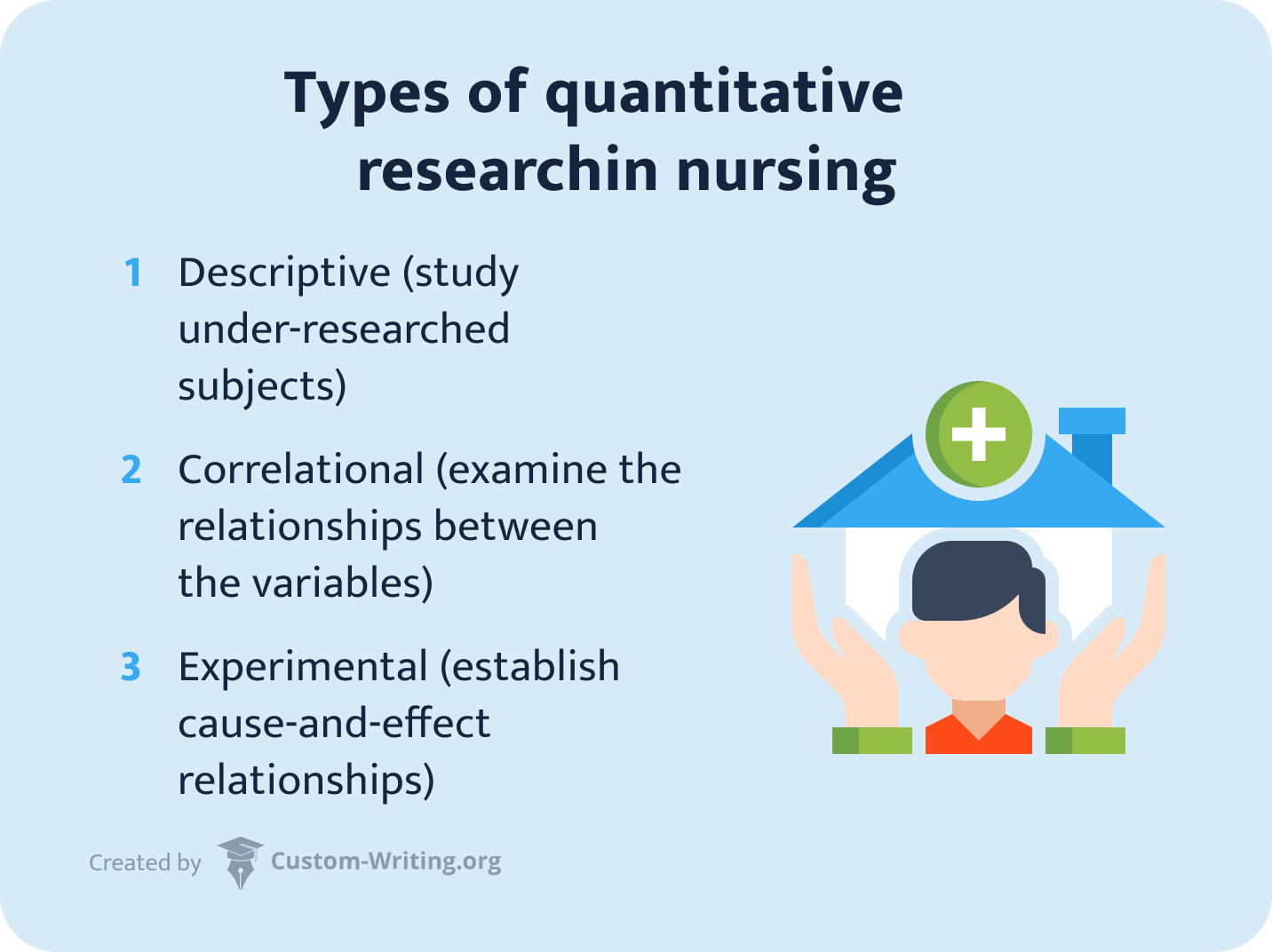
Experimental designs imply strict control from the researcher. They can be used for establishing cause-and-effect relationships, as well as predictions. The experiments are usually blind, which helps to avoid bias. Experimental designs are classified in the following way:
- True-experimental designs , in which cause-and-effect relationships are examined in a controlled environment. It includes studying two groups of people who receive different treatments, assigned randomly.
- Quasi-experimental designs , which differ from true experiments by the absence of random assignments.
🔬 Qualitative Research In Nursing
Qualitative research studies are focused on one’s personal experience. It is conducted through observation and interaction with patients via interviews, notes, and diaries. Induction is often used, by which you gain evidence to support a theory without generalizing the results.
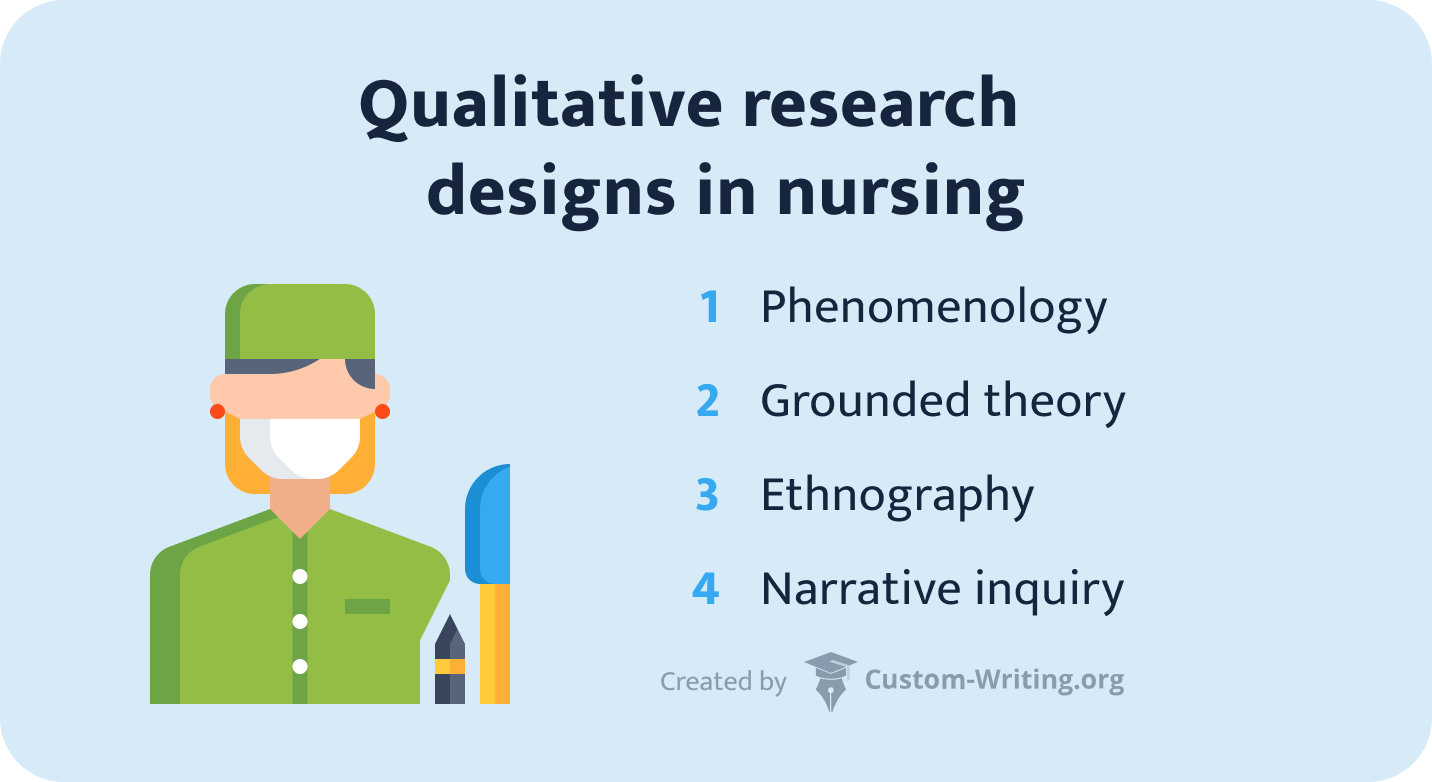
Qualitative research study designs include four types:
- Phenomenology. Phenomenological research is aimed at describing the phenomena as it is experienced by an individual. In this study, you need to select people who are familiar with the particular phenomenon. You gain information from each participant and make a conclusion.
- Grounded theory. This type of study includes the influence of social processes on individuals. You would need to interview the subjects themselves, as well as their relatives, spouses, etc. Then you synthesize the data into one theory.
- Ethnography. This type of research design is associated with the influence of a particular culture on individuals. It involves describing unique attributes of a culture from the insider’s perspective.
- Narrative inquiry. Narrative inquiry is a research study design that is based on an interpretation of personal accounts of the participants. You ask your subjects to talk about their experiences, and then you analyze their narratives. Contents, as well as the structure of the narratives, must be taken into account.
As you can see, there are great many research topics for nursing students to choose from! See what suits you best and formulate the idea for your own project. You can then publish your results in a nursing research journal article and start a discussion with other nurses around the world.
Get an originally-written paper according to your instructions!
If you’ve chosen an evidence-based practice nursing research topic, make sure that you find suitable human subjects for your experiment. You can ask your friends or make online questionnaires to help you conduct your research. Always take care of your subjects and protect their rights.
Once you’ve chosen your topic, study the available literature. See if there’s anything you can critique or question. This type of research is just as useful as applied research, as it helps to keep medical science relevant by constantly checking for obsolete information.
Find the topic, choose the design for your research, set yourself clear goals – and write your best nursing research paper or reflective essay ! Good luck!
🤔 Nursing Research FAQs
Nursing research is a type of study conducted by nurses during their practice. It helps them to gain evidence on the effectiveness of different treatments. Nursing research can be used to demonstrate the trustworthiness of new methods in medicine, as well as to predict outcomes for patients with illnesses or injuries.
The scientific activity of nurses is essential for the medical community. Nurses help to move medicine forward by challenging traditional practices with fresh ideas. Their research is usually aimed at enhancing professional practice and improving nursing activities. The topics include both physical and mental health.
The primary sources of nursing research are experience and scientific knowledge. Your personal experience as a nurse is especially important because it allows you to observe and gather first-hand information about various medical conditions. Scientific knowledge is then used for the evaluation and analysis of the collected data.
Sampling theory in medical science is a study of gathering information about a population by investigating only a part of it. To do that, you need to collect samples from a group of individuals who all share a common trait. A statistic is then estimated and applied to the whole population. Sampling is often conducted as part of nursing research because it allows making conclusions without testing it with all people.
Qualitative research in nursing is aimed at gathering information about patients’ subjective experiences. It is usually conducted in the form of interviews, notes, and diaries. It helps in understanding complex phenomena and is often used in psychology. Sometimes nurses themselves are interviewed about their working conditions. This type of research allows nurses to make their practice better by continually learning from experience.
Extraneous variables may affect the results of your research and even threaten its validity. They are hard to control, but their influence can be reduced in the following ways:
- Assign the subjects to treatment and control groups as randomly as possible.
- Match your samples by distributing people with different variables, such as age and gender, as evenly as possible.
- Maintain objectivity by avoiding bias.
- Adjust the results for the effects of extraneous variables through statistical analysis.
You might also be interested in:
- 226 Research Topics on Criminal Justice & Criminology
- 204 Research Topics on Technology & Computer Science
- 178 Best Research Titles about Cookery & Food
- 497 Interesting History Topics to Research
- 180 Best Education Research Topics & Ideas
- 110+ Micro- & Macroeconomics Research Topics
- 417 Business Research Topics for ABM Students
- 190+ Research Topics on Psychology & Communication
- 512 Research Topics on HumSS
- 281 Best Health & Medical Research Topics
- 501 Research Questions & Titles about Science
- A List of Research Topics for Students. Unique and Interesting
- Good Research Topics, Titles and Ideas for Your Paper
🔎 References
- Find a Topic Idea: Questia
- Nursing: Choosing a Research Topic (FGCU Library)
- Examples of Research Questions: Vanderbilt School of Nursing
- Current Issue: Nursing Research
- Nursing Research: Definitions and Directions (NCBI)
- Table of Contents (Nursing Research and Practice – Volume 2023)
- Nursing, research, and the evidence: Evidence-Based Nursing
- Psychiatry & Mental Health Topics: Medscape
- Geriatric Topics: ConsultGeri
- Major Research Areas: Department of Pediatrics, University of Rochester
- An overview of research designs relevant to nursing: Part 1: Quantitative research designs: SciELO
- An overview of research designs relevant to nursing: part 2: qualitative research designs: SciELO
- Clinical Nursing Research: Academia
- Innovation and scientific discovery: School of Nursing, University of Washington
- Center for Nursing Research: Duke University
- Research: Penn Nursing
- Share to Facebook
- Share to Twitter
- Share to LinkedIn
- Share to email
![nursing research questions Research Proposal Topics: 503 Ideas, Sample, & Guide [2024]](https://custom-writing.org/blog/wp-content/uploads/2021/01/woman-making-notes-284x153.jpg)
Do you have to write a research proposal and can’t choose one from the professor’s list? This article may be exactly what you need. We will provide you with the most up-to-date undergraduate and postgraduate topic ideas. Moreover, we will share the secrets of the winning research proposal writing. Here,...

A history class can become a jumble of years, dates, odd moments, and names of people who have been dead for centuries. Despite this, you’ll still need to find history topics to write about. You may have no choice! But once in a while, your instructor may let you pick...
![nursing research questions 150 Argumentative Research Paper Topics [2024 Upd.]](https://custom-writing.org/blog/wp-content/uploads/2021/01/close-up-magnifier-glass-yellow-background-284x153.jpg)
Argumentative research paper topics are a lot easier to find than to come up with. We always try to make your life easier. That’s why you should feel free to check out this list of the hottest and most controversial argumentative essay topics for 2024. In the article prepared by...

One of the greatest problems of the scholarly world is the lack of funny topics. So why not jazz it up? How about creating one of those humorous speeches the public is always so delighted to listen to? Making a couple of funny informative speech topics or coming up with...
![nursing research questions Gun Control Argumentative Essay: 160 Topics + How-to Guide [2024]](https://custom-writing.org/blog/wp-content/uploads/2021/01/bullets-gun-black-velvet-desk-284x153.jpg)
After the recent heartbreaking mass shootings, the gun control debate has reached its boiling point. Do we need stricter gun control laws? Should everyone get a weapon to oppose crime? Or should guns be banned overall? You have the opportunity to air your opinion in a gun control argumentative essay....
![nursing research questions Best Childhood Memories Essay Ideas: 94 Narrative Topics [2024]](https://custom-writing.org/blog/wp-content/uploads/2021/01/child-working-in-cambodia-284x153.jpg)
Many people believe that childhood is the happiest period in a person’s life. It’s not hard to see why. Kids have nothing to care or worry about, have almost no duties or problems, and can hang out with their friends all day long. An essay about childhood gives an opportunity...
![nursing research questions A List of 272 Informative Speech Topics: Pick Only Awesome Ideas! [2024]](https://custom-writing.org/blog/wp-content/uploads/2021/01/meeting-room-professional-meeting-284x153.jpg)
Just when you think you’re way past the question “How to write an essay?” another one comes. That’s the thing students desperately Google: “What is an informative speech?” And our custom writing experts are here to help you sort this out. Informative speaking is a speech on a completely new issue....
![nursing research questions 435 Literary Analysis Essay Topics and Prompts [2024 Upd]](https://custom-writing.org/blog/wp-content/uploads/2021/01/girl-having-idea-with-copy-space-284x153.jpg)
Literature courses are about two things: reading and writing about what you’ve read. For most students, it’s hard enough to understand great pieces of literature, never mind analyzing them. And with so many books and stories out there, choosing one to write about can be a chore. But you’re in...
![nursing research questions 335 Unique Essay Topics for College Students [2024 Update]](https://custom-writing.org/blog/wp-content/uploads/2021/01/smiling-students-walking-after-lessons1-284x153.jpg)
The success of any college essay depends on the topic choice. If you want to impress your instructors, your essay needs to be interesting and unique. Don’t know what to write about? We are here to help you! In this article by our Custom-Writing.org team, you will find 335 interesting...

Social studies is an integrated research field. It includes a range of topics on social science and humanities, such as history, culture, geography, sociology, education, etc. A social studies essay might be assigned to any middle school, high school, or college student. It might seem like a daunting task, but...

If you are about to go into the world of graduate school, then one of the first things you need to do is choose from all the possible dissertation topics available to you. This is no small task. You are likely to spend many years researching your Master’s or Ph.D....

Looking for a good argumentative essay topic? In need of a persuasive idea for a research paper? You’ve found the right page! Academic writing is never easy, whether it is for middle school or college. That’s why there are numerous educational materials on composing an argumentative and persuasive essay, for...
thanks for the presentation, now I know who to turn to for help
Hello dear Thank you for your kind presentation like this hot topics . Am nursing master student and I need topic for my thesis.if you can help me
Budget Clomid
- Alzheimer's disease & dementia
- Arthritis & Rheumatism
- Attention deficit disorders
- Autism spectrum disorders
- Biomedical technology
- Diseases, Conditions, Syndromes
- Endocrinology & Metabolism
- Gastroenterology
- Gerontology & Geriatrics
- Health informatics
- Inflammatory disorders
- Medical economics
- Medical research
- Medications
- Neuroscience
- Obstetrics & gynaecology
- Oncology & Cancer
- Ophthalmology
- Overweight & Obesity
- Parkinson's & Movement disorders
- Psychology & Psychiatry
- Radiology & Imaging
- Sleep disorders
- Sports medicine & Kinesiology
- Vaccination
- Breast cancer
- Cardiovascular disease
- Chronic obstructive pulmonary disease
- Colon cancer
- Coronary artery disease
- Heart attack
- Heart disease
- High blood pressure
- Kidney disease
- Lung cancer
- Multiple sclerosis
- Myocardial infarction
- Ovarian cancer
- Post traumatic stress disorder
- Rheumatoid arthritis
- Schizophrenia
- Skin cancer
- Type 2 diabetes
- Full List »
share this!
April 29, 2024
This article has been reviewed according to Science X's editorial process and policies . Editors have highlighted the following attributes while ensuring the content's credibility:
fact-checked
peer-reviewed publication
trusted source
Researchers suggest expanding health equity by including nursing home residents in clinical trials
by Regenstrief Institute
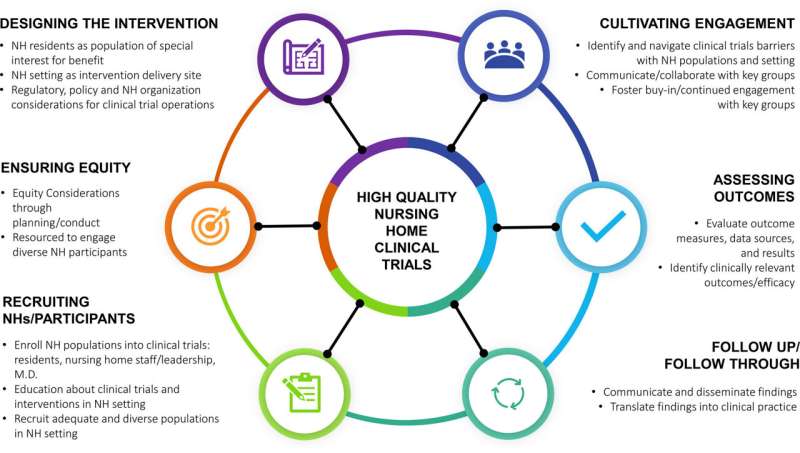
Clinical trials are constantly being designed and study participants enrolled to determine if medical treatments and therapies are safe and effective. Much has been written about the importance of including diverse populations in these trials.
However, the nearly 1.4 million individuals who live in the 15,600 nursing homes across the U.S. have been largely left out of clinical trials , despite the prevalence of such common conditions as hypertension, depression, diabetes and Alzheimer's disease in this population.
A commentary by faculty of Regenstrief Institute, Indiana University, UCLA and the universities of North Carolina, Colorado and Massachusetts, published in the Journal of the American Geriatrics Society (JAGS) , focuses on the importance of including nursing home residents, a population with significant medical complexity, in clinical trials.
The essay highlights the benefits and challenges of conducting research on medical therapies in nursing homes. The authors identify key elements for successful nursing home clinical trials and propose a nursing home clinical trials network, noting that ensuring diversity, equity and inclusion in any trial design is imperative.
"Among the questions we want to ask are: Is this therapy appropriate for a nursing home population? Does it work in a nursing home population but are there issues around implementation? Are there challenges to delivering it in a nursing home setting?" notes corresponding author Kathleen Unroe, M.D., MHA, M.S., a Regenstrief Institute and IU School of Medicine researcher-clinician.
"Nursing homes were not built to facilitate research. We as researchers need to fit in. We need to appreciate the realities of providing clinical care in this setting and adjust and adapt our protocols to work within that system."
Among the topics discussed in the commentary:
- The need for clinical trials in nursing homes
- Gaps that can be filled with these clinical trials
- Challenges conducting these clinical trials
- Next steps in conducting clinical trials in nursing homes
- A framework for making a nursing home clinical trials network a reality
"It is imperative that we build the science of nursing home care around testing, prevention, diagnosis, and treatment. It is a unique setting that merits more focus given the essential role it plays in the continuum of care for seriously ill adults," said commentary co-author Susan Hickman, Ph.D., director of Regenstrief Institute's Center for Aging Research and a faculty member of IU schools of nursing and medicine.
Citing a missed opportunity, the authors write, "Inclusion of nursing home residents in COVID-19 therapeutics trials might have identified specific issues relating to dosing, administration and monitoring, spurred creation of training materials specifically for nursing home staff, and promoted the development of consistent policies to identify appropriate candidates and deliver treatments promptly, safely, and optimally."
Dr. Unroe adds, "Nursing home residents should have access to evidence-based therapies. When we choose not to do the hard work to test them in the nursing home setting, we are setting ourselves up for a much more difficult implementation."
She notes that "Conducting trials in the nursing home may generate generalizable knowledge that also would be highly relevant to people who are cared for in assisted living facilities or even the broader geriatric population living at home."
Explore further
Feedback to editors

Individuals of all ages with positive skin or blood test should receive preventive treatment for TB, new study says
8 hours ago

New research reports on financial entanglements between FDA chiefs and the drug industry

A 30-year US study links ultra-processed food to higher risk of early death

A third COVID vaccine dose improves defense for some clinically extremely vulnerable patients

Research team identifies four new genetic risk factors for multiple system atrophy
10 hours ago

About 90% of US adults are on the way to heart disease, study suggests

Researchers identify what drives PARP inhibitor resistance in advanced breast cancer

How infections influence our social empathy
11 hours ago

Health risks of using cannabis are higher in adolescents than in adults, study finds
12 hours ago

Study finds THC lingers in breastmilk with no clear peak point
Related stories.

Improving dementia care in nursing homes: Learning from the pandemic years
Apr 10, 2024

Making transitions from nursing home to hospital safer during COVID-19 outbreak
Apr 28, 2020

Specialized nursing facility clinicians found to improve end-of-life care
Mar 15, 2024

Novel nurse-driven virtual care model supports nursing home residents and nurses who care for them
Jun 20, 2023

Looking beyond the numbers to see pandemic's effect on nursing home residents
Jul 14, 2021

New app to bridge information gap between hospitals, nursing homes and offer better care for patients
Dec 14, 2023
Recommended for you

Researchers outline how cells activate to cause fibrosis and organ scarring
16 hours ago

Researchers discover new target for potential leukemia therapy

New analysis links resident physicians' exam scores to patient survival
May 7, 2024

Seeking medical insights in the physics of mucus

Study: Progression of herpesvirus infection remodels mitochondrial organization and metabolism
Let us know if there is a problem with our content.
Use this form if you have come across a typo, inaccuracy or would like to send an edit request for the content on this page. For general inquiries, please use our contact form . For general feedback, use the public comments section below (please adhere to guidelines ).
Please select the most appropriate category to facilitate processing of your request
Thank you for taking time to provide your feedback to the editors.
Your feedback is important to us. However, we do not guarantee individual replies due to the high volume of messages.
E-mail the story
Your email address is used only to let the recipient know who sent the email. Neither your address nor the recipient's address will be used for any other purpose. The information you enter will appear in your e-mail message and is not retained by Medical Xpress in any form.
Newsletter sign up
Get weekly and/or daily updates delivered to your inbox. You can unsubscribe at any time and we'll never share your details to third parties.
More information Privacy policy
Donate and enjoy an ad-free experience
We keep our content available to everyone. Consider supporting Science X's mission by getting a premium account.
E-mail newsletter

An official website of the United States government
Here's how you know
Official websites use .gov A .gov website belongs to an official government organization in the United States.
Secure .gov websites use HTTPS A lock ( Lock Locked padlock ) or https:// means you’ve safely connected to the .gov website. Share sensitive information only on official, secure websites.

- Research Initiatives
- Meet Our Researchers
- Meet Our Program Officers
- RESEARCH LENSES
- Health Equity
- Social Determinants of Health
- Population and Community Health
- Prevention and Health Promotion
- Systems and Models of Care
- Funding Opportunities
- Small Business Funding
- Grant Applicant Resources
- Training Grants
- Featured Research
- Strategic Plan
- Budget and Legislation
- Connect With Us
- Jobs at NINR

Advancing health equity into the future.
NINR's mission is to lead nursing research to solve pressing health challenges and inform practice and policy – optimizing health and advancing health equity into the future.
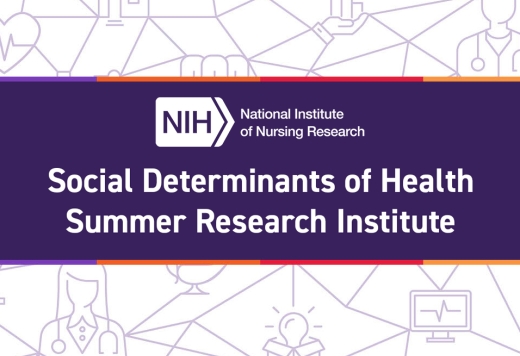
Funding Opportunities Newsletter
Subscribe to receive the latest funding opportunities and updates from NINR.
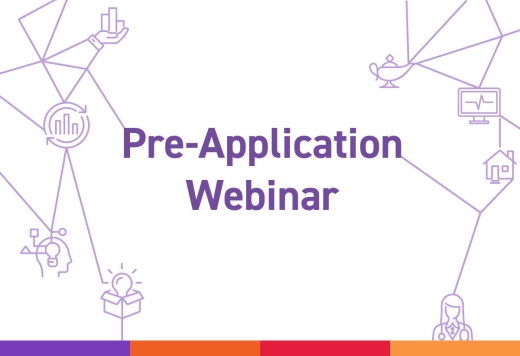
Funding opportunities that improve health outcomes
NINR believes that nursing research is the key to unlocking the power and potential of nursing. NINR offers grants to individuals at all points in their career, from early investigators to established scientists. NINR grants also support small businesses and research centers.

Research Funding

Small Business

Training Funding
Homepage events stories, addressing public health challenges through research.
NINR-supported researchers explore and address some of the most important challenges affecting the health of the American people. Learn about accomplishments from the community of NINR-supported scientists across the United States.

Advancing social determinants of health research at NIH
Over 20 NIH Institutes, Centers, and Offices are working collaboratively to accelerate NIH-wide SDOH research across diseases and conditions, populations, stages of the life course, and SDOH domains.

IMAGES
VIDEO
COMMENTS
A good PICOT question possesses the following qualities: A clinical-based question addresses the nursing research areas or topics. It is specific, concise, and clear. Patient, problem, or population. Intervention. Comparison. Outcome. Includes medical, clinical, and nursing terms where necessary. It is not ambiguous.
1. Clinical Nursing Research Topics. Analyze the use of telehealth/virtual nursing to reduce inpatient nurse duties. Discuss the impact of evidence-based respiratory interventions on patient outcomes in critical care settings. Explore the effectiveness of pain management protocols in pediatric patients. 2.
Test your knowledge about nursing research with 60 items in this free test bank. Learn from the rationales, share your feedback, and access recommended resources for your NCLEX success.
The process of formulating a good research question can be challenging and frustrating. While a comprehensive literature review is compulsory, the researcher usually encounters methodological difficulties in the conduct of the study, particularly if the primary study question has not been adequately selected in accordance with the clinical dilemma that needs to be addressed.
Step Two: Do some background searching on the topic. Taking a look in relevant resources to see what's already been written about your topic will help you understand how you can best contribute to the body of literature. It will also help you grasp the terminology around the topic, so that you'll be more prepared to do an effective literature ...
A well-formulated research question needs extreme specificity and preciseness which guides the implementation of the project keeping in mind the identification of variables and population of interest. Here we will present a clinical scenario and see how clinical questions arise and help us in finding the evidence to answer our question.
To begin to develop and narrow a clinical research question it is advisable to craft an answerable question that begins and ends with a patient, population, or problem. These are the beginnings of not only developing an answerable EBP question, but also using the PICO process for developing well-built searchable and answerable clinical questions.
All good academic research starts with a research question. A research question is an actual question you want to answer about a particular topic. Developing a question helps you focus on an aspect of your topic, which will streamline your research and writing. To create a research question: Pick a topic you are interested in.
Nursing research contributes to innovation at all points along the discovery‐translation‐application continuum, continually advancing science, transforming patient care and improving outcomes (Grady, 2017). Guided by the MCNR model, nurse scientists discover answers to puzzling clinical questions that can be translated and applied directly ...
Here are some tips for selecting a research question that you will enjoy learning about and will ultimately lead to a good grade. Read through your assignment. Professors design an assignment outline for a reason. Make sure your topic can and will adhere to their requirements and guidelines. Choose a topic you are interested in.
Learn about the PhD in Nursing Science Program at Vanderbilt University and explore examples of research questions in clinical and health services nursing. Find out how to apply, fund and conduct your own nursing research.
These types of questions typically ask who, what, where, when, how & why about things like a disorder, test, or treatment, etc. Background questions are best answered by medical textbooks, which are available from platforms such as AccessMedicine and ClinicalKey Nursing. Foreground questions ask for specific knowledge to inform clinical ...
A "foreground" question in health research is one that is relatively specific, and is usually best addressed by locating primary research evidence. Using a structured question framework can help you clearly define the concepts or variables that make up the specific research question. Across most frameworks, you'll often be considering:
General Nursing Research Topics & Ideas. The impact of cultural competence on patient care in the UK. The importance of evidence-based practice in nursing for patients with HIV/AIDS. The effects of workplace stress on nurse well-being and performance. The role of nurse-patient communication for patients transitioning from adolescent to adult care.
To find that research efficiently, the clinician must ask a well-designed clinical question with all the elements that will lead to finding relevant research literature. The first step in doing this is to determine the type of question: background or foreground. The type of question helps to determine the resource to access to answer the question.
2. Mental Health Nursing Research Articles Topics. Research papers focusing on mental health are still one of the most read and referred papers. And there's still more scope for research on topics such as: Evaluating the concept of Integrated Mental and Physical Health Care. Psychiatric Nursing and Mental Health.
Jul 15, 2023. Answer. There are many scales used in nursing research to measure various aspects of nursing, such as attitudes, values, perceptions, behaviors, outcomes, etc. Some examples of ...
Nursing Research is a peer-reviewed journal celebrating over 60 years as the most sought-after nursing resource; it offers more depth, more detail, and more of what today's nurses demand. Nursing Research covers key issues, including health promotion, human responses to illness, acute care nursing research, symptom management, cost-effectiveness, vulnerable populations, health services, and ...
Evidence-based practice is now widely recognized as the key to improving healthcare quality and patient outcomes. Although the purposes of nursing research (conducting research to generate new knowledge) and evidence-based nursing practice (utilizing best evidence as basis of nursing practice) seem quite different, an increasing number of research studies have been conducted with the goal of ...
Research topics in nursing are a way to gain valuable evidence-based knowledge while providing patient care. Moreover, they offer an opportunity to help other nurses by contributing to global healthcare. Some of the most pressing nursing research questions concern medical surgery, midwifery, and geriatrics, as well as the issues of leadership ...
If you're interested in specializing in pediatric nursing, you may focus your research on a topic within childhood nursing. Here are some examples of research topics: Antibiotics impact on childhood immunities. Effects of childhood exposure to environmental pollutants. Effects of second-hand smoke inhalation in early life.
Key elements for successful nursing home (NH) clinical trials. Credit: Journal of the American Geriatrics Society (2024). DOI: 10.1111/jgs.18829
The world needs nurses, and the University of Pittsburgh School of Nursing wants you. Nursing is a profession of immense importance, offering many personal and professional rewards. ... research, and health care management. It is estimated that growth for nurses with graduate degrees will top 50%: many of Pitt's 2nd Degree students go onto to ...
(SACRAMENTO) A review conducted by UC Davis pediatricians and published in the Journal of Perinatology, raises the alarm on a potential crisis in the pediatric subspecialty workforce. Medicaid pays for about 41% of births in the U.S., but under-reimbursement is having a profound impact on hospital incomes and, along with that, salaries for pediatric endocrinologists, nephrologists ...
The mission of the National Institute of Nursing Research (NINR) is to promote and improve the health of individuals, families, and communities. To achieve this mission, NINR supports and conducts clinical and basic research and research training on health and illness, research that spans and integrates the behavioral and biological sciences, and that develops the scientific basis for clinical ...
Boosting staffing may help limit use of "chemical restraints," study finds. Nursing homes in disadvantaged communities are more likely to overmedicate residents with antipsychotics, especially homes that are understaffed, according to a new study published in JAMA Network Open. "The neighborhood in which a nursing home is located seems to influence how widely antipsychotics are used ...
Mar. 30, 2023 — Harsh discipline from parents puts young children at greater risk of developing lasting mental health problems, new research shows. A study with over 7,500 children in Ireland ...
The purpose of ePROS is to contribute to the VA Research Enterprise mission of improving Veterans lives through research by: . Ensuring the protection of the public, research staff, human participants, and animals in VA conducted research through policy, education, risk assessment, and mitigation.
Medicare.gov Care Compare is a new tool that helps you find and compare the quality of Medicare-approved providers near you. You can search for nursing homes, doctors, hospitals, hospice centers, and more. Learn how to use Care Compare and make informed decisions about your health care. Official Medicare site.